THE KANSAS M ASON
Volume 60, Issue 2 Fall 2022
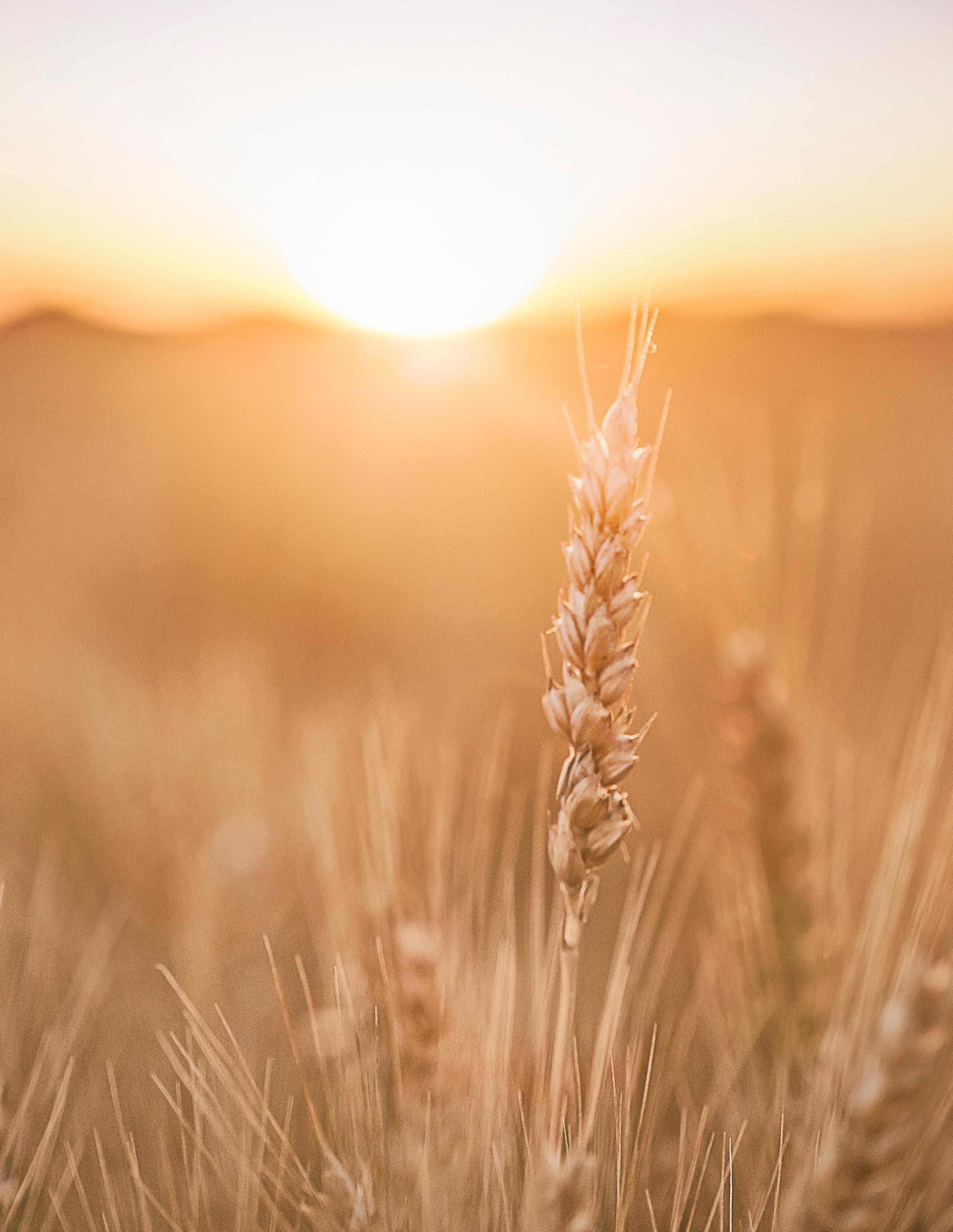 A publication for Kansas Masons by Kansas Masons in partnership with the Grand Lodge of Kansas.
A publication for Kansas Masons by Kansas Masons in partnership with the Grand Lodge of Kansas.
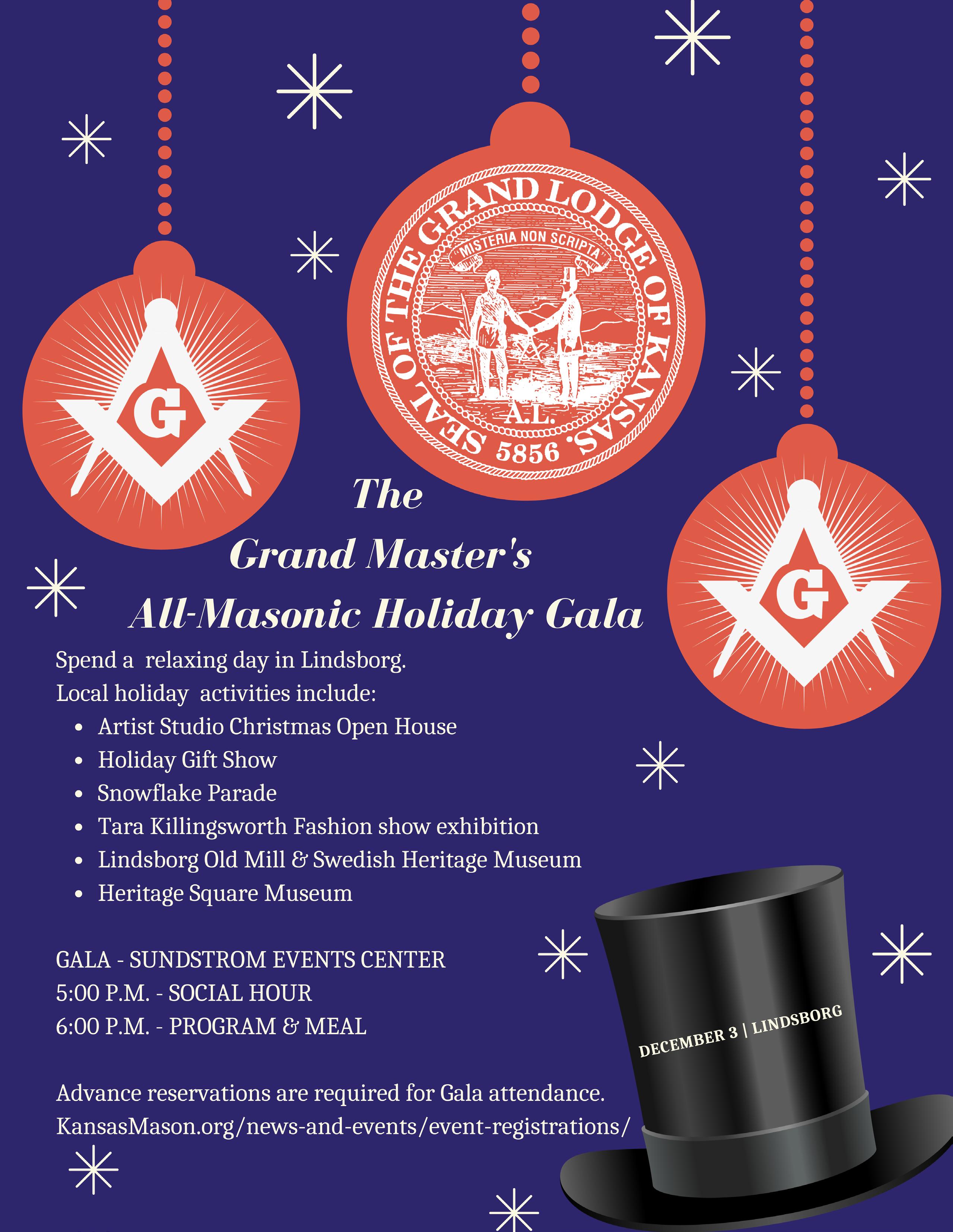
"Be better today than you were yesterday"…. this ageold mantra can be attributed to anyone from early LDS leader Lorenzo Snow to author James Gordon, among many others, and has been adopted as the rallying cry for those self-improvement crusaders who are on a journey to truly improve their lives. However, viewing this phrase through the lens of Freemasonry reveals that it predates either of these scholars and is easily adapted to the masonic concept of seeking light. It may be said that Masons and their Lodges should constantly employ such a phrase in the transaction of their business. If this is objectively scrutinized, it appears that this is not often the case and that this adage is not discussed nearly enough to make the difference. Sure, some Brothers contradict this unfortunate fact, but overwhelmingly, it remains…
Seeking the “quality” versus the “quantity” of Masons directly adds momentum to this phrase and strengthens Lodges. In the previous edition of The Kansas Mason, PGM Mikel Stoops provided some interesting statistics in the article “Membership Retention: A Matter of Value.” The bottom line: the better the masonic experience, the more likely a Brother Mason will remain

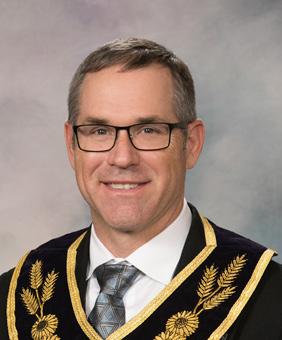
a member of Kansas Freemasonry. The aforementioned phrase lends directly to these numbers because Brothers and Lodges who invest more into the fraternity strive to improve daily. They begin to understand what Masonry is and position it as a way of life. They automatically go through daily life attempting to cognitively live better today than they did yesterday.
This is where we are at in Kansas Masonry-either choose to live the lives that Masonry teaches us to or don’t. Some have made this choice, which is seen in the positivity and vitality exhibited in those Lodges providing an exciting Masonic experience. It is seen in the Brothers who travel the state to offer masonic education multiple times a month. The ritualists who travel to assist Lodges performing degree work are not to be overlooked either, as their work is often done in the background but is of the utmost importance to the Craft. Kansas Masonry is in an exciting place, and it is certainly hoped that every mason in this jurisdiction will join the journey.
Have a great day, Brothers!

THE BOTTOM LINE
Michael D. Johnson II, Grand Master of Masons in Kansas 2022-2023
Are you getting better? Are we?
The better the Masonic experience, the more likely a Brother Mason will remain a member of Kansas Freemasonry
OLP Again!
Bloom, Grand Secretary, Bloom@KansasMason.org
Yes, Brothers, as I said in previous editions of this publication, I would be covering all of the features of the Our Lodge Page (OLP), web application, and phone app. One of the main requests we heard from the 2019 Strategic Refresh session was the need for an app for our members. This application has been available since that date and is the most underutilized tool in the Grand Lodge of Kansas arsenal.
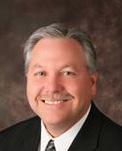




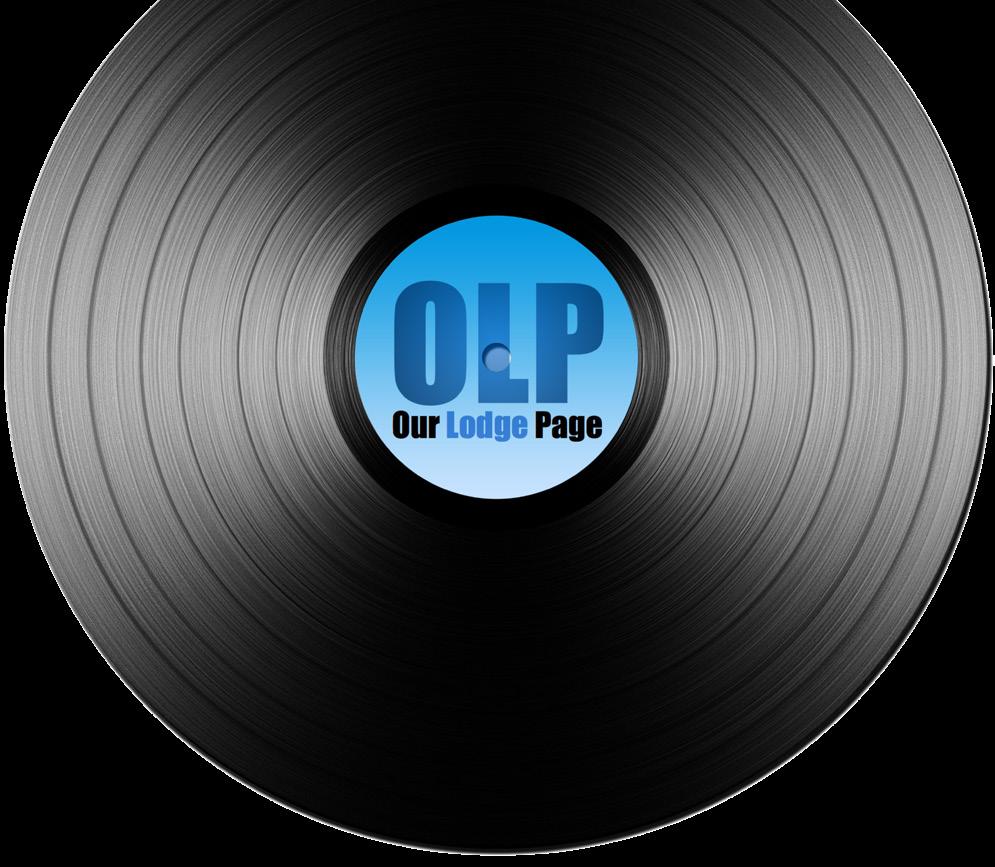


With that in mind, I’m going to start this article a bit differently and talk about the need for accurate member information, which I can’t stress enough. If your secretary can not contact you about your pending annual dues notice and other things because of outdated contact information, becoming suspended for Non-Payment of Dues (NPD) might be a real
thing. Let’s try our best to avoid that mess because it might just mean you’ll need to petition the lodge for restoration and pass the ballot box again. OLP can help with that! You will also run a chance of being dropped from the Scottish Rite, York Rite, Shrine, and OES.
OLP has a great feature built in to help you avoid going NPD. You should receive auto-generated meeting notices for each lodge you belong to, and those notifications will let you know if you have an outstanding balance for a particular lodge. Additionally, if your lodge has the electronic pay feature activated in OLP, you can pay your dues with the click of a button. A bonus feature is when you click to pay, you’ll have three options to conveniently pay your dues, pay in full, pay quarterly, or make
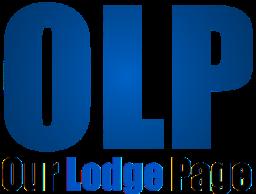
4
Tracy
ten monthly payments. It’s all waiting on you to take advantage of.

Yes, OLP is available to every lodge and every member in this jurisdiction; if your lodge is not using it, please ask your secretary or Master why not. Oh, did I mention that the cost to the lodge for using OLP and its features is $0.00? That’s right. There is no charge!


An additional benefit of the OLP app is it is a great communications tool for you and your lodge. Unlike Facebook, Twitter, TikTok, and other public social media platforms, the OLP platform can be pretty private for your members. Your lodge can share information such as articles, notifications, and other documents like pictures or meeting minutes with only members of your lodge. There is also a great chat feature that allows you instant messaging access to other members of your lodge.
Switching gears now, I’m sure we are all aware that the Grand Lodge hired a company, PCI, to update all our member’s personal information over the past several months. You received postcard reminders and possibly even phone calls if you ignored the postcards. This was necessary because we had hundreds of outdated home addresses and thousands of missing cell phone numbers and email addresses. Communication between our lodges and their members is critical; it could mean the difference between being a Mason in good standing to one who has been suspended for

Non-Payment of Dues (NPD).
PCI is the same company we used a few years back. However, this time, they asked you to deliver some oral history or stories you might be willing to share with us when the directory is published. You were not obligated to participate in the oral history, but we strongly encouraged everyone. The thing to remember about this engagement is that your personal contact information is updated in our M2 Database only; they do not sell or keep any of the information they collect, period! Your personal information is safe and secure! After confirming or updating your contact information, they most likely asked if you wanted to purchase some Kansas Freemasonry branded items and a hardbound directory book. This is how they help cover their costs, as the Grand Lodge is charged nothing for their services. They were not supposed to twist your arm to buy anything; if they did, let me know! If you don’t want your information to appear in the book, you should have been aware of the option to opt-out. You can also contact me, and I will ensure it’s not included in the book.
So, the moral of the story is, please, please, ensure that your contact information gets verified or updated by letting your secretary know, or you personally update it using the OLP app. Both are viable options; the option we do not want to exercise is losing you as a valued Kansas Mason!
5
Use on your computer: OurLodgePage.com Stay informed in real time. Communicate in real time. Individual and group chat participation. See upcoming events and RSVP in the app. Add the event to your calendar and map it. Favorite
you
members
contact frequently.
Can a Kansas Mason Change the World?
 Douglas L. Wilkinson, Grand Senior Warden
Douglas L. Wilkinson, Grand Senior Warden
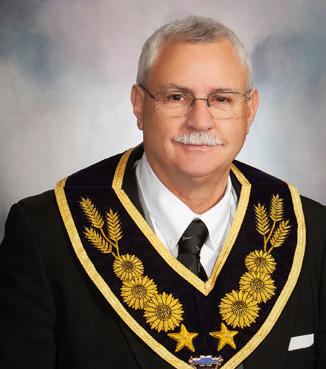
Editors Note: The following submission has been edited and adapted with permission from a personalized letter.
Every day we read and hear about tragedies and ask ourselves, “What could have been done to prevent (or change) that outcome?” Often it is, “Somebody should have done something about that!” We sometimes see physical altercations resulting in death or permanent disability. But for all those powerful actions, I feel that many times there is something much more emotionally connecting than physical happenings. Words.

I think most of us, at one time or another, have said something we would like to take back. Maybe we said something that cut deeper than any knife and permanently altered our relationship with someone for years or, perhaps, even the rest of their or our life. I have witnessed people never speaking again over a few words uttered in the heat of the moment. Worse yet, I have seen Brothers quit their Lodges and, in some rare cases,
the Fraternity over a couple of words. Can one Kansas Mason change the world? Let me explain my answer, which is, of course, yes; the editor most likely wouldn’t have printed this article submission if I had suggested we could not. I try very hard to live by the general principle of, I change the world around me by changing myself first! If we can start with ourselves, then we can at the very least demonstrate to others and ultimately the world how we should conduct ourselves and, just as importantly, treat others. Physical and verbal violence or abuse starts with each of us in how we conduct ourselves! Equally, Brotherly love and affection start with each of us in how we conduct ourselves. I would think we can all agree on that if nothing else. With that groundwork laid, I would like to travel back to our “early” Masonic teachings. While I realize that as our years in the Craft grow larger, the distance from our By-Laws and ritual does as well for many. We should endeavor to keep them close as they both serve vital roles in how we act and conduct ourselves to our neighbors (friends, family, etc.) and, ultimately, the world. At one time, we knelt and placed our hands on the Three Great Lights and promised we would perform specific duties through our obligations.
We should all have been taught how to use our working tools. Each degree lecture should have had a significant meaning to us. Also, as part of each degree work, we received a ‘Charge.’ Do you remember your Charges? Each charge holds significant value in explaining how we are supposed to conduct ourselves up to and including how we treat others.
Additionally, the Charges are all monitorial, which means you can easily read them. Other than a Brother who has committed the Charges to memory, I surmise that many of us probably don’t remember receiving them as part of our degree. Go read them, and then re-read them. Because the lessons they teach are so important to me, I have committed most of them to memory. Many who know me find I often reflect on those promises and charges in our basic conversations.
So, back to the question. Can a Kansas Mason (you) change the world? That answer depends on how you answer this question: Am I willing to make changes in myself first so that I might change the world? Yes, that’s right. It starts with one person, then another, a group, an area, and then the state and grows from there.
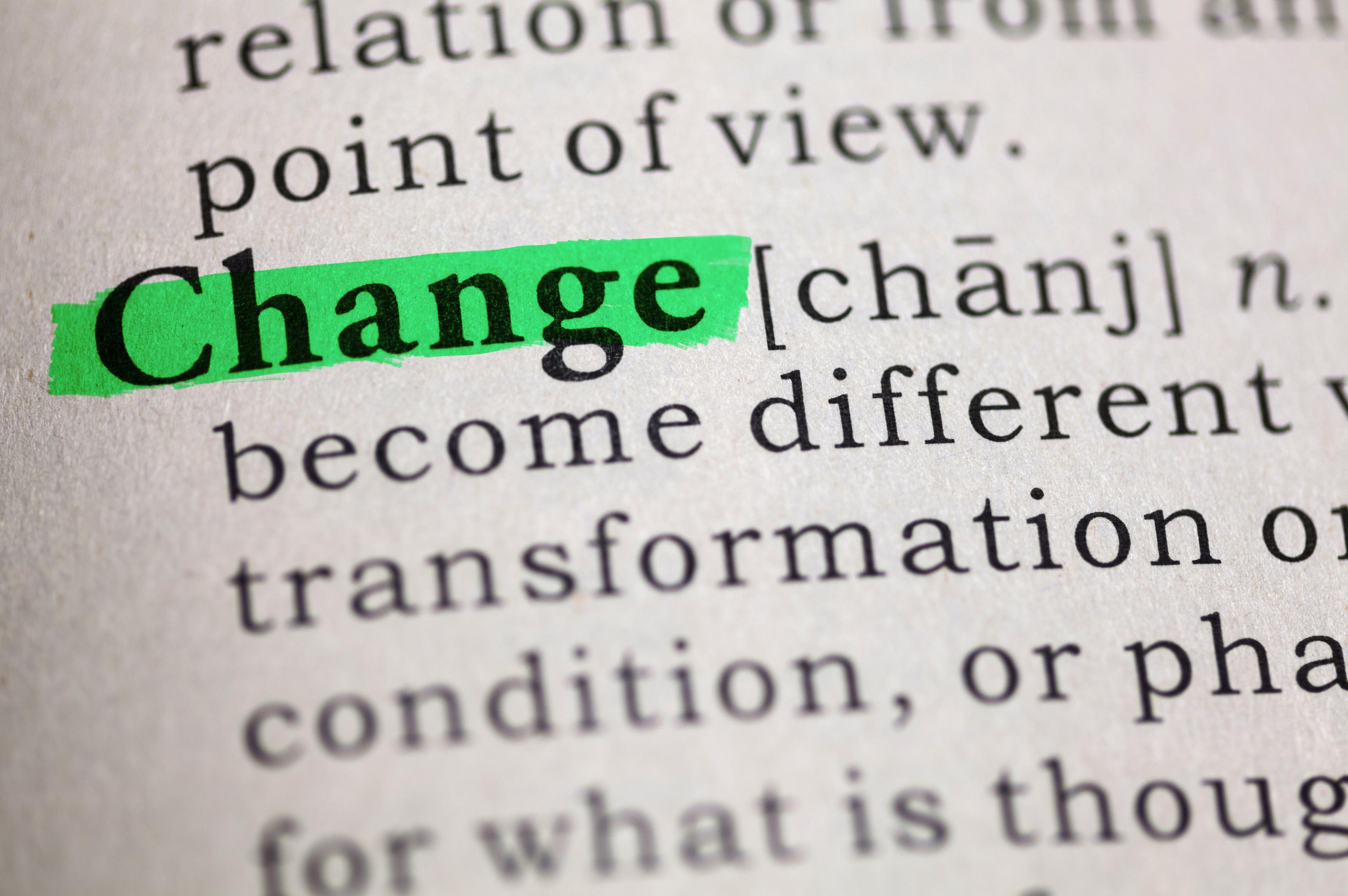

If your answer is “Yes, I want to make a significant impact on the world,” then, as soon as you can, pull out your ciphers and refresh yourselves on what you promised to your deity and yourself that you would do! Read the three charges you received. They are so overlooked and, other than the promises you made to the Grand Architect upon the Three Great Lights, are next in line of importance, at least in my opinion.
Finally, you do not need to attend Lodge or a study club to do what I have just discussed and recommended. They can be done anytime you want, even on the commode, as many claim to do. Attending Lodge or, even more so, a study club can be essential for those wishing to improve ritualistically. What I am suggesting is entirely different. This is about changing ourselves and fulfilling our promises made at the altar and, ultimately,
Each of us can contribute to changing the world around us! We just have to get started!
The sooner, the better!
Self ReflectionThe Meaning of DeMolay To Me

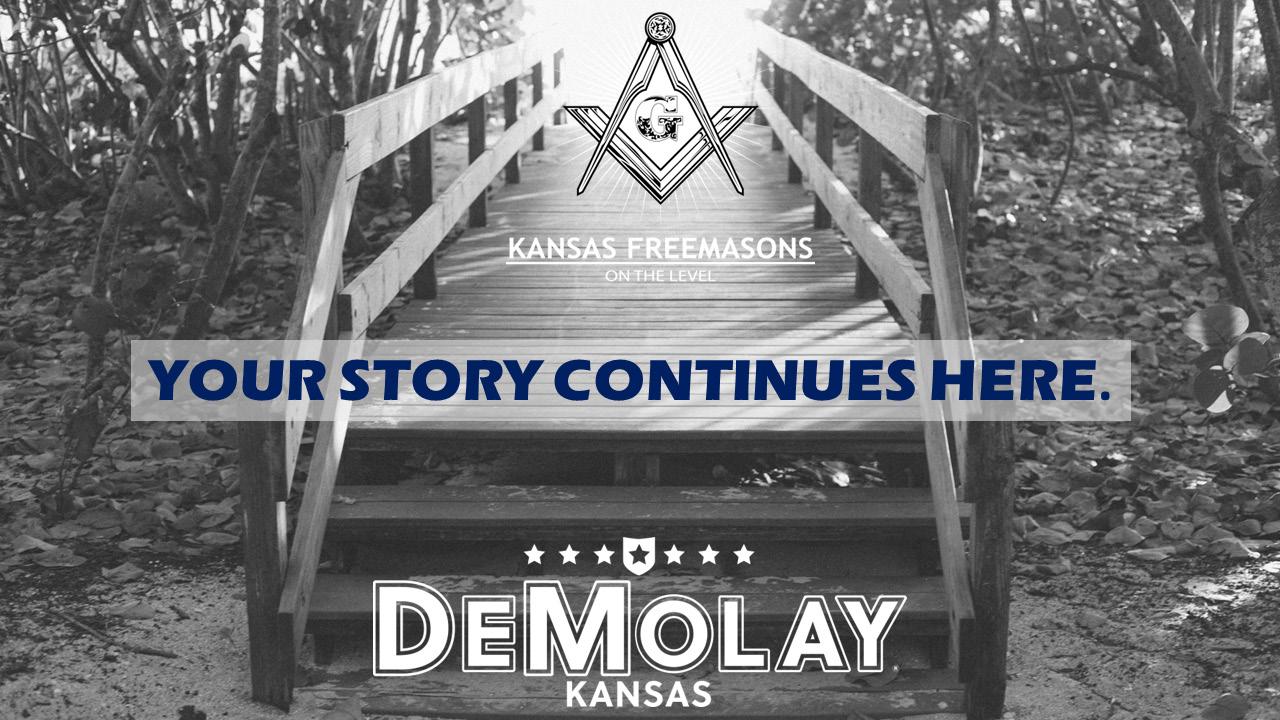
To me, DeMolay is like a never-ending mission that is infinitely enjoyable at the same time. The mission of DeMolay, to me, is to improve our communities and the world as much as we can to make it a more just, peaceful, yet prosperous place. However, DeMolay also creates an unexplainable special bond between its members. DeMolay contains a great trust and acquaintance, starting from the first moments one takes a step inside one of our Chapter rooms. It was this brotherhood and comradeship that genuinely helped me connect more with the world and with myself. The morals provided through the ritualistic works, which help instill principal values, have allowed me to base myself further, build my character significantly, and see greater hope in all beings and things in the universe. I have learned patience, confidence, humility, and perseverance that I would not have otherwise attained. With all of this, I feel that I have become the ultimate version of a man. It is not being a DeMolay but being a high-quality leader. The preparation for manhood, that noontime of life, provided by DeMolay has also made me feel more confident: Not just generally, but to be successfully independent for life as a leader, a man, a citizen, and perhaps even as a caring father or father figure. Reaching out and making a difference, not just for ourselves, is more than humbling. It makes the work we do much more satisfying. But being a DeMolay member is not just restricted to activities, official promotions, and events. Being DeMolay extends to all aspects of life, as it should. As a DeMolay, I extend it beyond the Chapter, beyond the principle virtues, by being myself as much as possible. By bringing all my effort and learning to other organizations I participate in, such as my school’s student council and the
County Youth Court. At any given chance, I show off my pride in my nationality as an American, whether singing along with the national anthem or just stopping for a moment and even saluting the Star-Spangled banner. But most of all, DeMolay has encouraged me to accept who I am better, especially as I further discover myself during this late morning of life. It was here that I found my first group of people I felt connected with more deeply and I can rely on when needed. I admit that I have trouble opening up to others on deeper levels at times, but with DeMolay, I started to get my footing in putting myself out more persistently and more confidently while also fulfilling myself to the most potential I can. But if anything, DeMolay is the most tremendous honor a young man in his teens can get. And at that, one of the most ambitious journeys a man can take in his life, should he be deemed worthy and deserving through his efforts. From my perspective, Freemasons can assist DeMolay in its mission by giving DeMolays motivation and guidance in leadership, helping DeMolays with both retaining chapter members as well as gaining new or prospective members for their chapters, and helping DeMolay chapters establish and maintain good relationships with public schools, government organizations, and authorities, as well as with the general community, too.
8
Submitted by Eli West, State Junior Kansas, Kansas DeMolay, member of Delaware Chapter
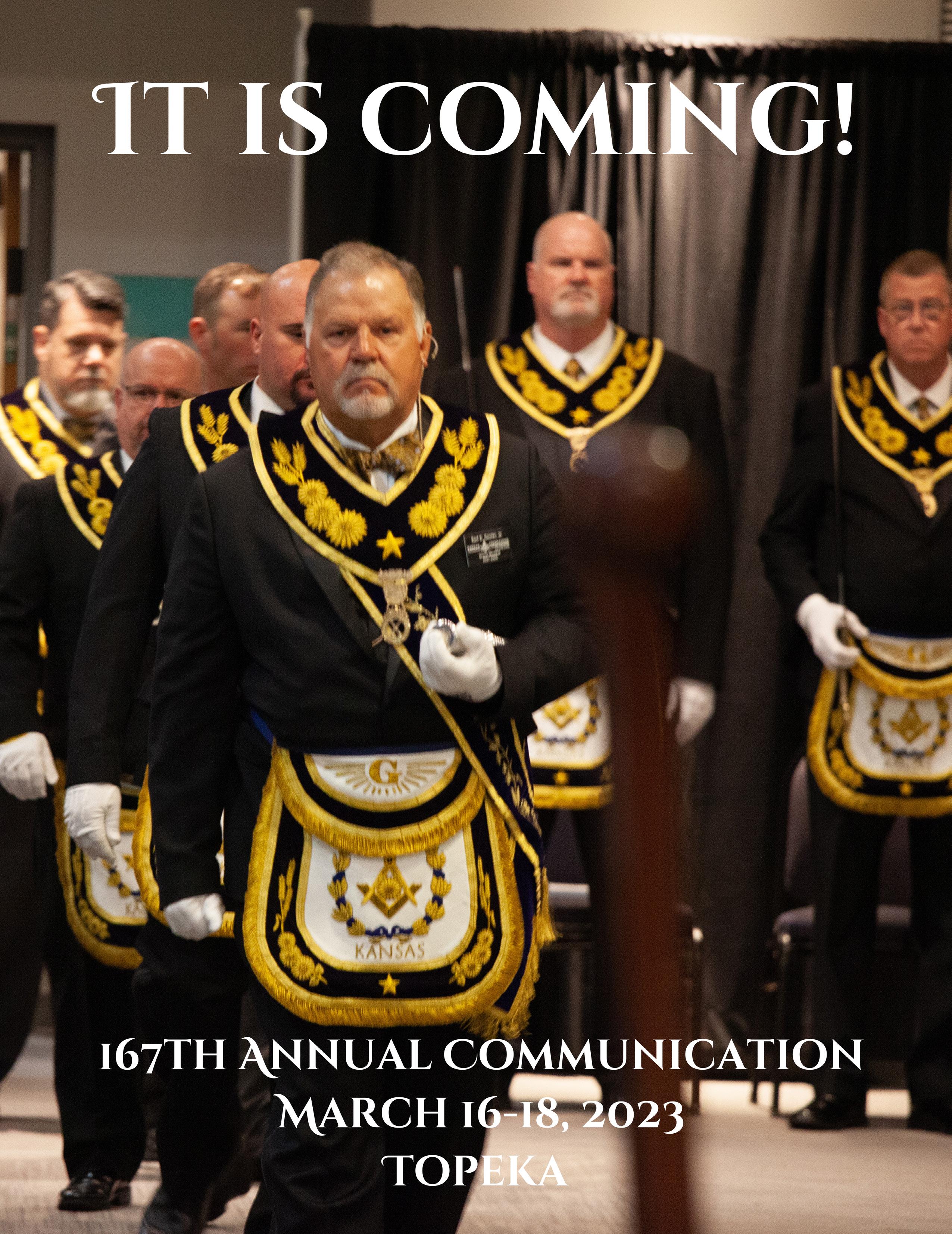
Onward!
(Masonic Travels in the Military)
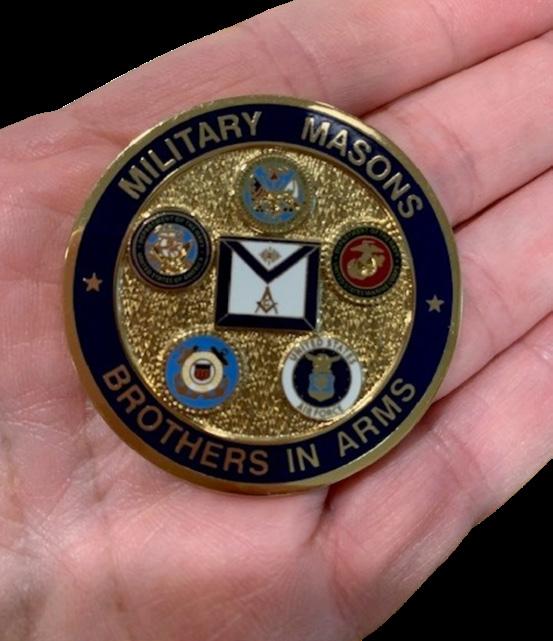 Submitted by: Adam R. Richardson Chief Warrant Officer 2, USA; dual member, Hancock Lodge No. 311
Submitted by: Adam R. Richardson Chief Warrant Officer 2, USA; dual member, Hancock Lodge No. 311
Upon being raised to the sublime degree of Master Mason, one realizes a life’s journey has just begun. We continually travel Eastward on our life’s journey to explore the many wonders of this world, all the while pondering on the next. The institution of Freemasonry has allowed me to travel, and the military has allowed me to travel further than I have ever expected.
My masonic journey began in Heidelberg, Germany. After many months of searching and inquiring, I discovered the American Canadian Grand Lodge of Germany had a lodge not very far from where I was living. Unlike their American counterparts, many German lodges are very nondescript and difficult to find. This is due to the overt prosecution of Freemasonry during the time of the National Socialists prior to and during the Second World War. Like many of their American counterparts, a Lodge building will house businesses below the Lodge rooms.
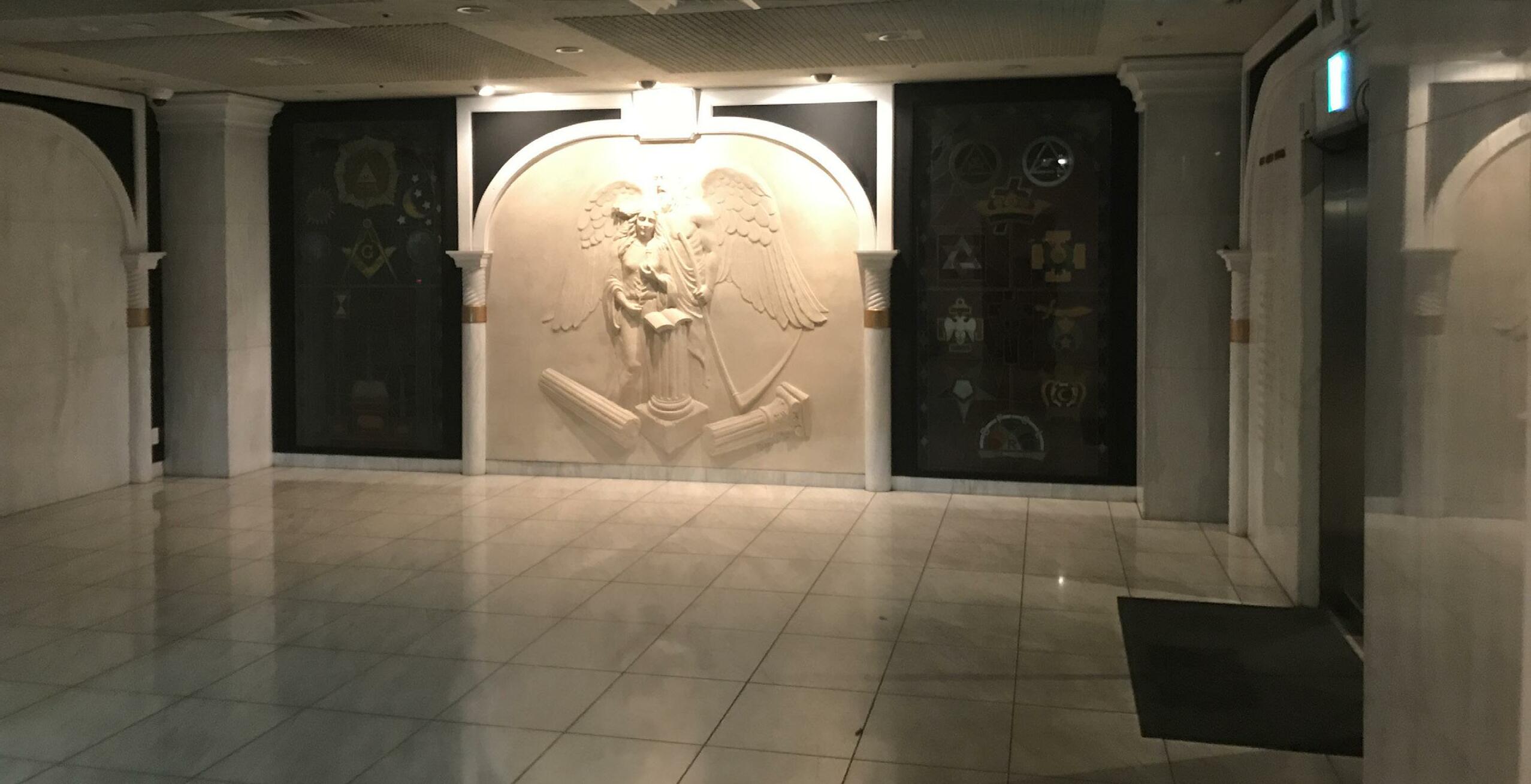
My mother Lodge, now known as Alt Heidelberg Fiedlitas 821, was founded in 1955 by American military members with a shared interest in Freemasonry. Alt Heidelberg 821 maintains a wonderful legacy of excellent degree work. Alt Heidelberg 821 shares the Lodge with Freimaurerloge Ruprecht zu den fünf
Rosen – translated from German as Freemason Lodge Ruprecht of the Five Roses or R5R. R5R belongs to Großloge der Alten Freien und Angenommenen Maurer von Deutschland (Grand Lodge of Ancient Free and Accepted Masons of Germany). There are five Grand Lodges in Germany, operating under the United Grand Lodges of Germany. It is probably needless to say, but Freemasonry in Germany is very structured and formal. The five Grand Lodges in Germany contain their own unique origins and perspectives on the Craft. Since returning to Germany in 2018, I have become active in Alt Heidelberg Fiedlitas 821 again. Unfortunately, the days of the American Canadian Grand Lodge seem to be in their twilight, which has left quite an impression on me. These uniquely American Lodges operating under a German Grand Lodge system should have their story told to one and all.
Before we travel to Fort Leavenworth, Kansas, I want to tell the story of another American Lodge abroad. Tokyo Masonic Lodge 2 is easily one of the most beautiful Lodges one can visit. Tokyo 2 is a small, unassuming glass building not far from the Tokyo Tower, which the Eiffel Tower inspired. The most amazing part of
 Interior of the Tokoyo Masonic Temple
Inset: Blue Lodge room at the Tokoyo Masonic Temple
Interior of the Tokoyo Masonic Temple
Inset: Blue Lodge room at the Tokoyo Masonic Temple
the Tokyo Masonic center to me was that the elevator takes you underground, and that is where the real treasures await. The Lodge was not used to visitors; indeed, the night I visited, I was tested by the brethren present. Prior to my arrival, they had already turned away one visitor. After a wonderful meeting, I was given a tour through the Tokyo Masonic Center, which also entailed the Scottish Rite Room. The pictures of the Tokyo Masonic Center on the internet do not do this lodge justice.
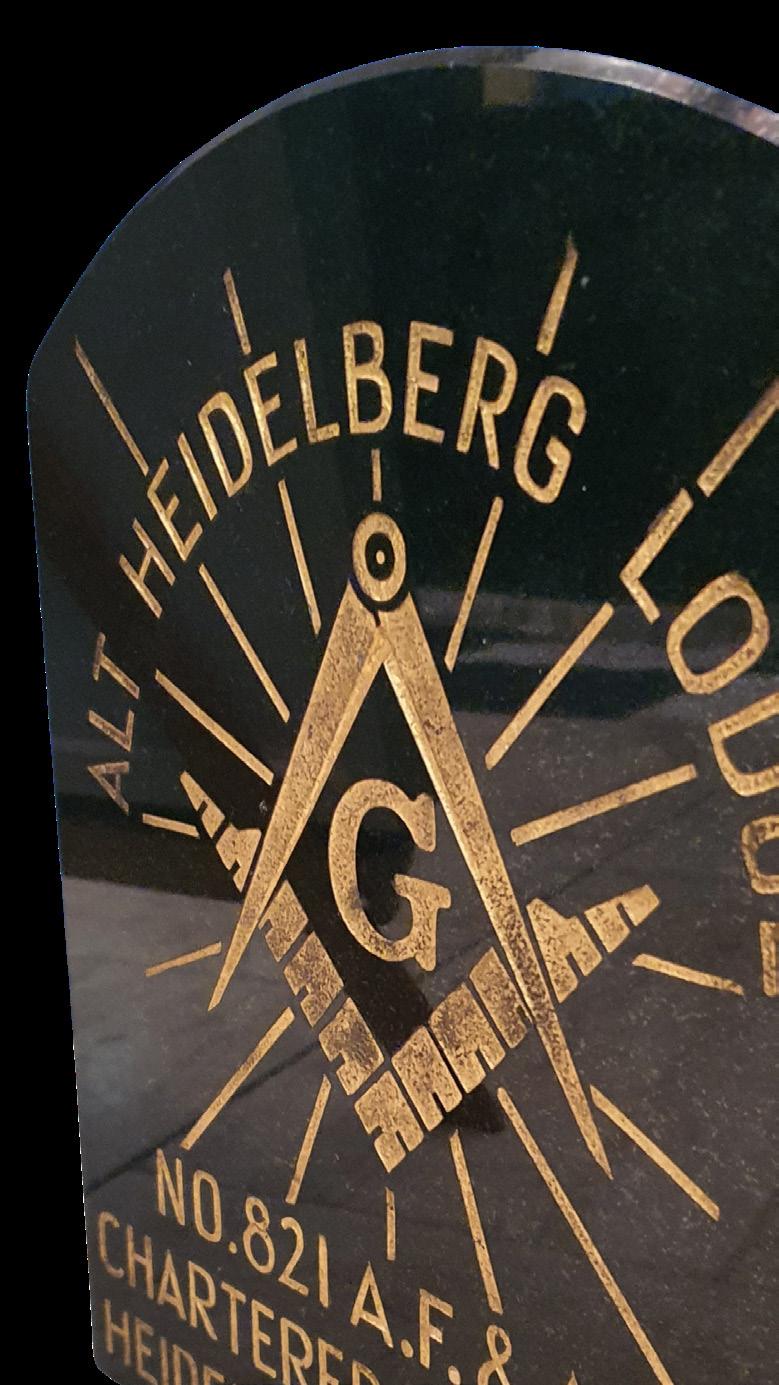
Both aforementioned lodges contain their own masonic stories carried on by generations of worthy brothers. Before moving on, it is worth saying, at this point, please travel if you can. Visit other Lodges, whether out on vacation or traveling for business. Take the time and reach out to the lodges in the area and see if it is a meeting night or if someone will simply offer a tour of their second home.

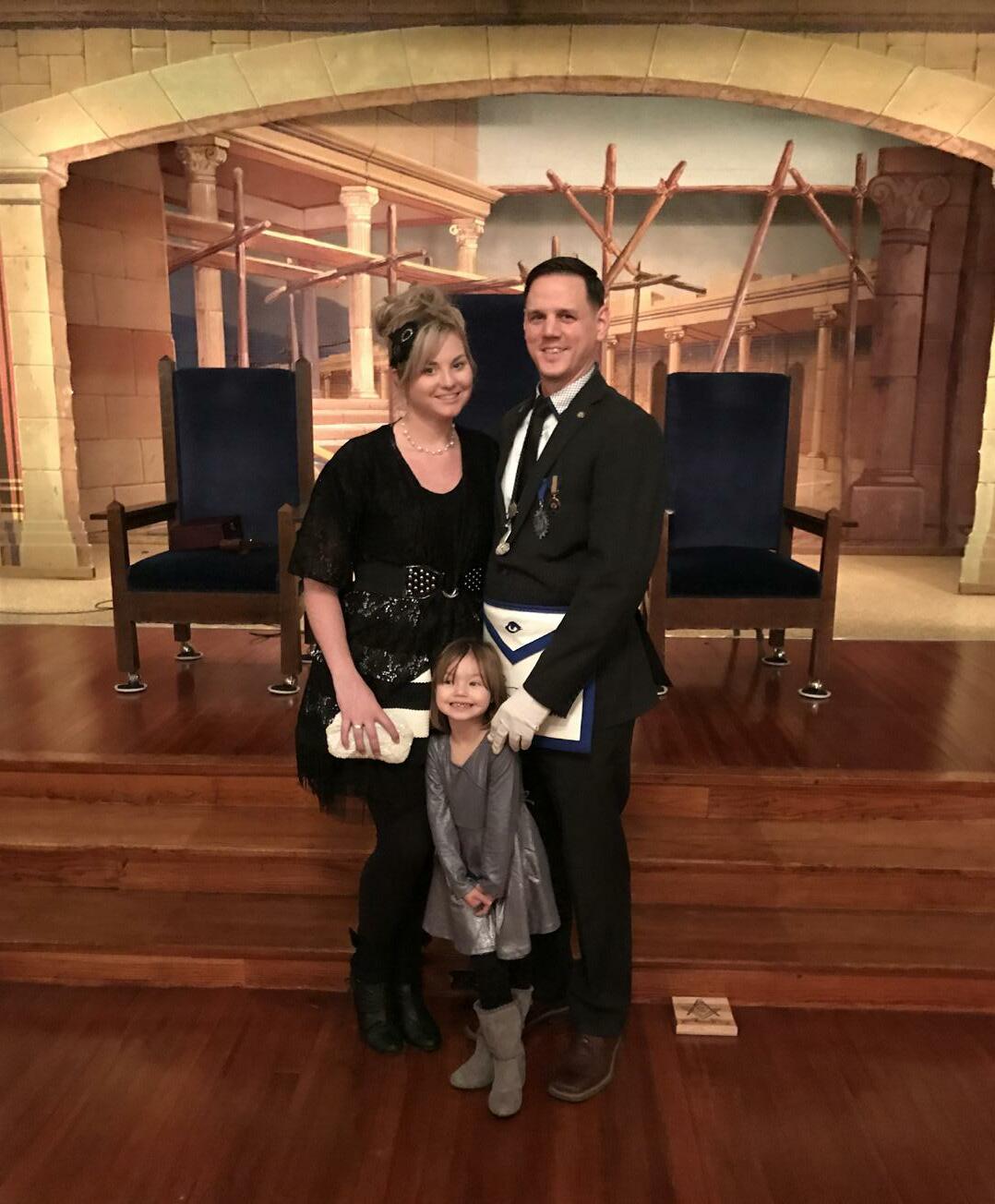
Fort Leavenworth, Kansas, contains the last Masonic Lodge building on a US Army installation. Boughton Memorial Masonic Hall contains a post
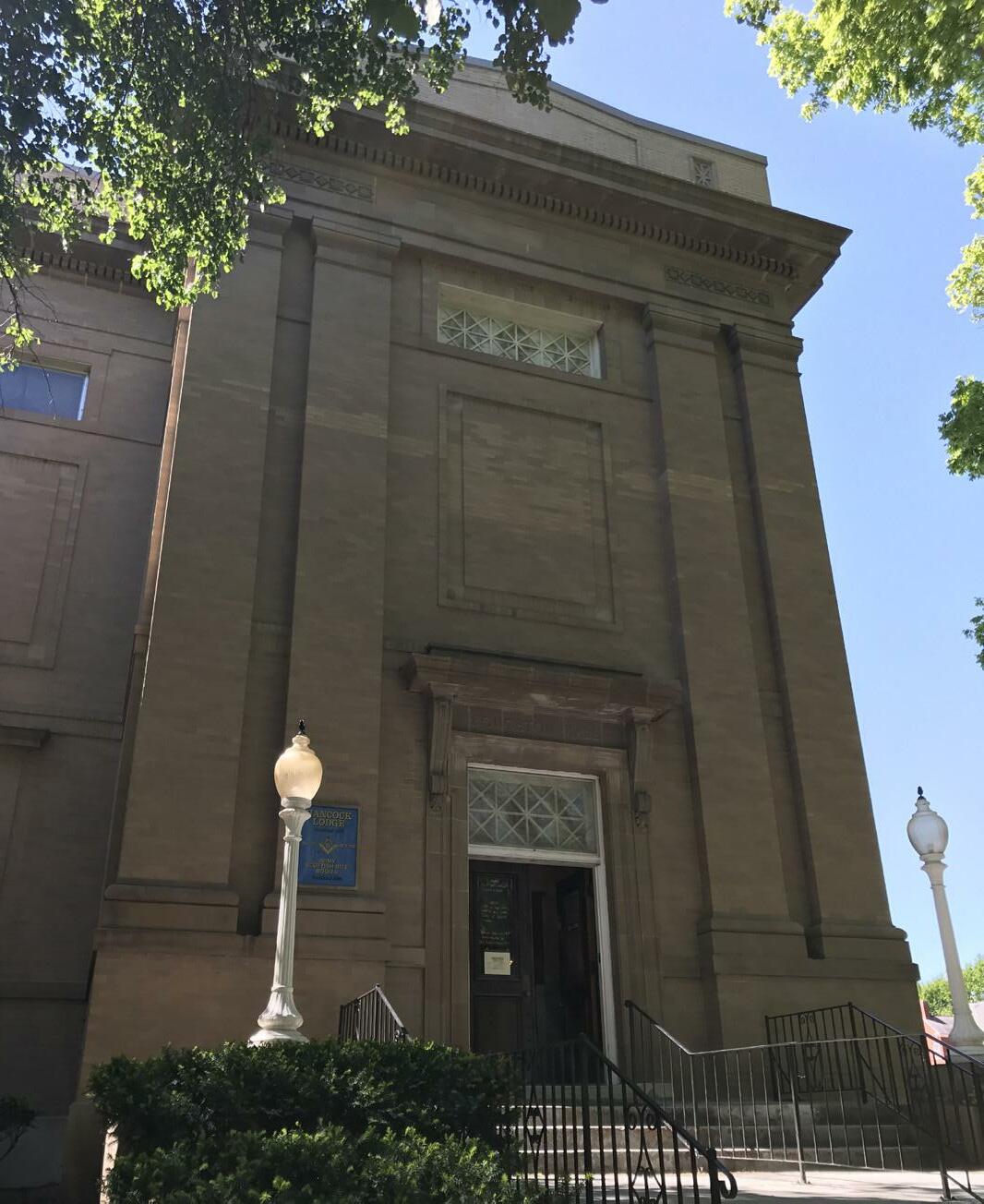
office, Hancock Lodge 311, and the Valley of the Armed Forces Scottish Rite Bodies. Boughton Hall has served Fort Leavenworth and Freemasonry for nearly one hundred years, and many famous Generals have walked through the building halls. The Lodge maintains a healthy population of both active duty, retired and civilian brothers who operate together like a well-oiled machine. Indeed, some brothers have much more history and knowledge of Boughton Hall than I do, and I would defer to their expertise, but in terms of travel, if you can ever visit the Lodge at Fort Leavenworth, please take the time to do so.
It is essential to travel when one is made a Mason. Travel provides meaning, inspiration, and conversation to others with whom we may not otherwise cross paths. As a well-seasoned traveler who enjoys moonlighting as a homebody, travel removes me from my comfort zone and forces me to interact with the world around me. In doing such, every one of us has the ability to make those around us better people; it is just up to us (you) to do it.
Boughton Memorial Masonic Hall Author and family at Hancock Lodge 311
Leadership Academy 2022
Submitted by Christopher D. Neeley, DSM, Hays Lodge No. 195
The Annual Leadership Academy and cannon-fire table lodge were held on September 9th and 10th at Hotel Topeka at City Center. The conference and celebration have become a fixture in Kansas Masonry. They continue to improve with each passing year, which should be no surprise, considering the aim of the event and fraternity, in general, is continual improvement.
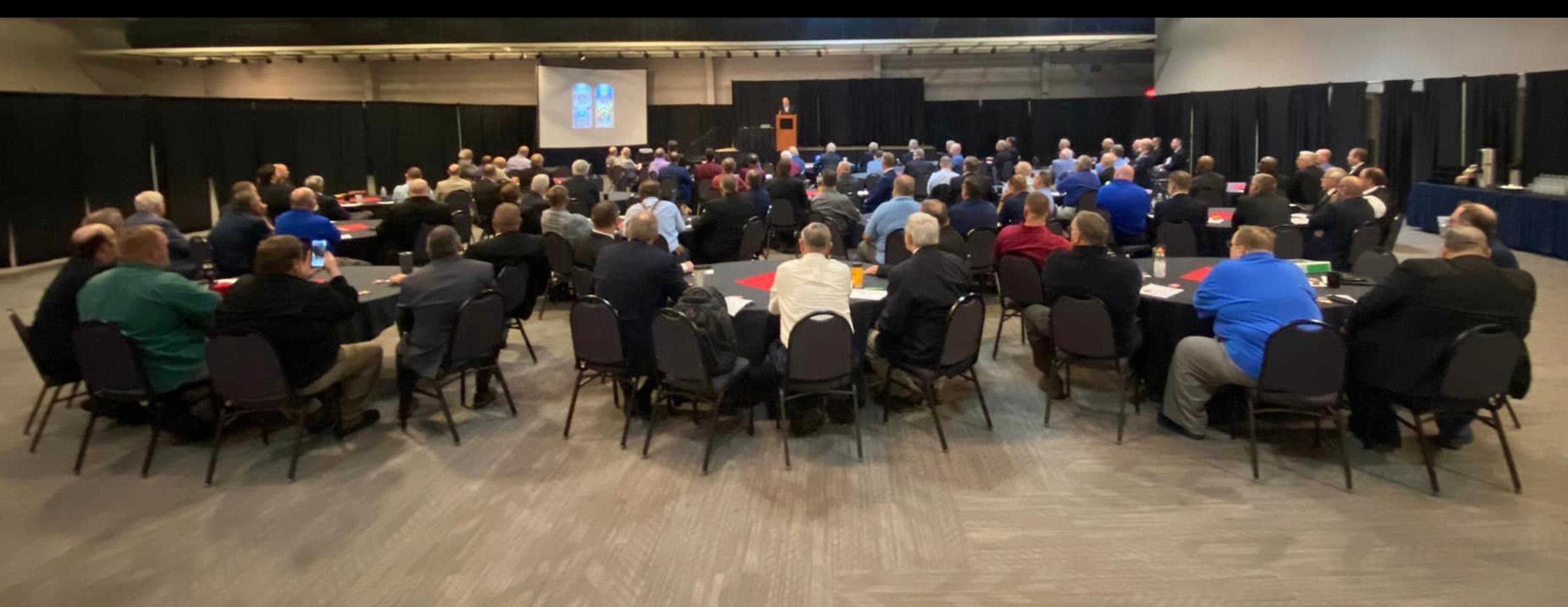
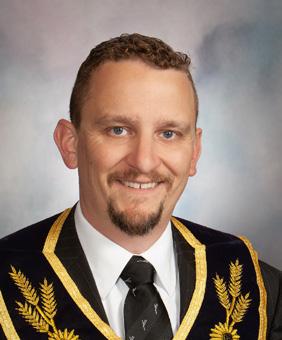
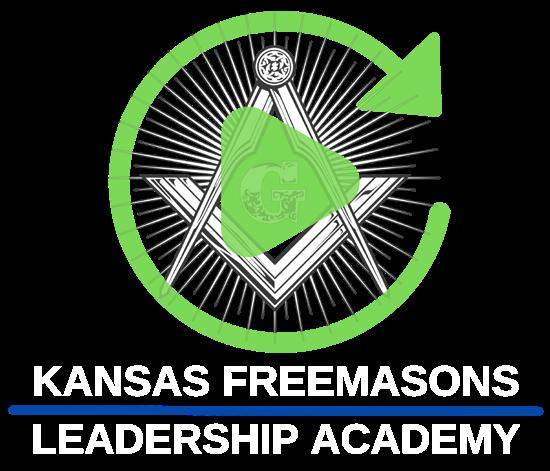
The Leadership Academy grew out of the Master and Wardens' School but differs in that it no longer directly targets the lodge wardens preparing for 'their year' in the east. These days, the Academy is not limited to wardens, officers, nor even Master Masons. The event is open to all Masons, and topics appropriate for Brothers in any station on their Masonic journey have been selected for presentation. The wide-ranging topics might touch on anything from planning an event to the esoteric nature of the ritual. The hope is that the expanded audience and focus will empower individual Masons to take the initiative in their lodges. Friday evening, Brothers filtered into the hotel. After meeting in the lobby, catching up, and rekindling those feelings of brotherhood, they assembled in a grand banquet hall and the table lodge began. Though often overlooked, events held outside of lodge meetings, with brothers in attendance, are incredibly beneficial to the
Order. When you can set aside the stressors and trials of either maintaining a vibrant lodge or working to rebuild one, and when you have no ritual to recall or part to play, you can focus on the enjoyment of being a Mason. You can revel in your Brother's company, restore old connections and build new ones. Fellowship is the wage paid at a table lodge.
Grand Master Michael Johnson's remarks during the table lodge painted an encouraging picture of the state of the fraternity. "Brothers, things are happening in Kansas," he said. From Alex Power's inaugural Kansas Masonic Con (Masonic Convention) to lodges with enviable schedules of guest speakers, open house events, and schools to deliver the mentorship program to new masons of every degree, the Craft has taken the initiative to improve the Masonic experience. These events have not been created by 'Grand Lodge.' No Brothers, this is a movement from the bottom up, leadership from the Masonic south and north. After dinner, and after being led through a rigorous course of 'fire' by Deputy Grand Master Rob McClarty, the seven toasts, and singing "Auld Lang Syne'', we left the grand banquet hall energized with the spirit of Freemasonry, ready for the next morning's Leadership Academy.
The morning came sooner than some had hoped,
but the inspiration soon began to flow as much as the coffee. Brother Ryan Flynn, a Masonic artist from New Hampshire, was one of two keynote speakers and started the day. Brother Flynn related his experience of growing as an artist and compared it to the mindset of improvement within the fraternity. After his presentation, the day was predominately divided into breakout sessions organized into three categories: Masonic (interest), leadership, and logistics, with four presentations in each category. Together the breakout sessions addressed many of the critical aspects within Masonry. The small group size of the breakouts allowed for impassioned conversation, and I know it did precisely that in at least one case. These sessions and the Academy as a whole bring together many Brothers who each have their own experiences and expertise, transforming the hotel into Kansas' biggest Masonic think tank. In attendance are the jurisdiction's leading experts on membership, mentorship, planning, publications, events, fundraising, and history, to list a few. From this base of experience, we can share the knowledge to impact every lodge…if it is represented. As the day ended, we were left with the words of the afternoon keynote speaker, Brother Chuck Dunning,
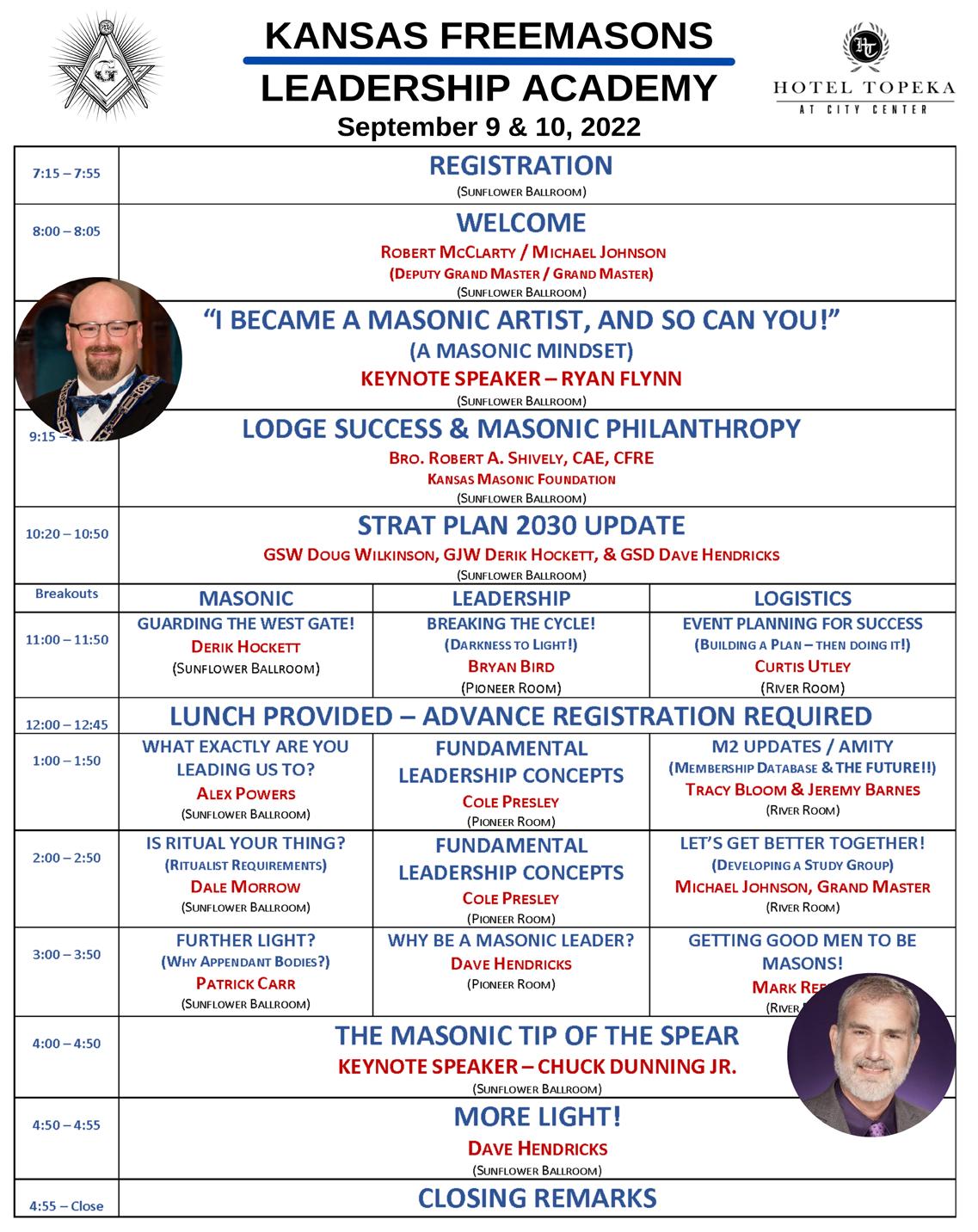
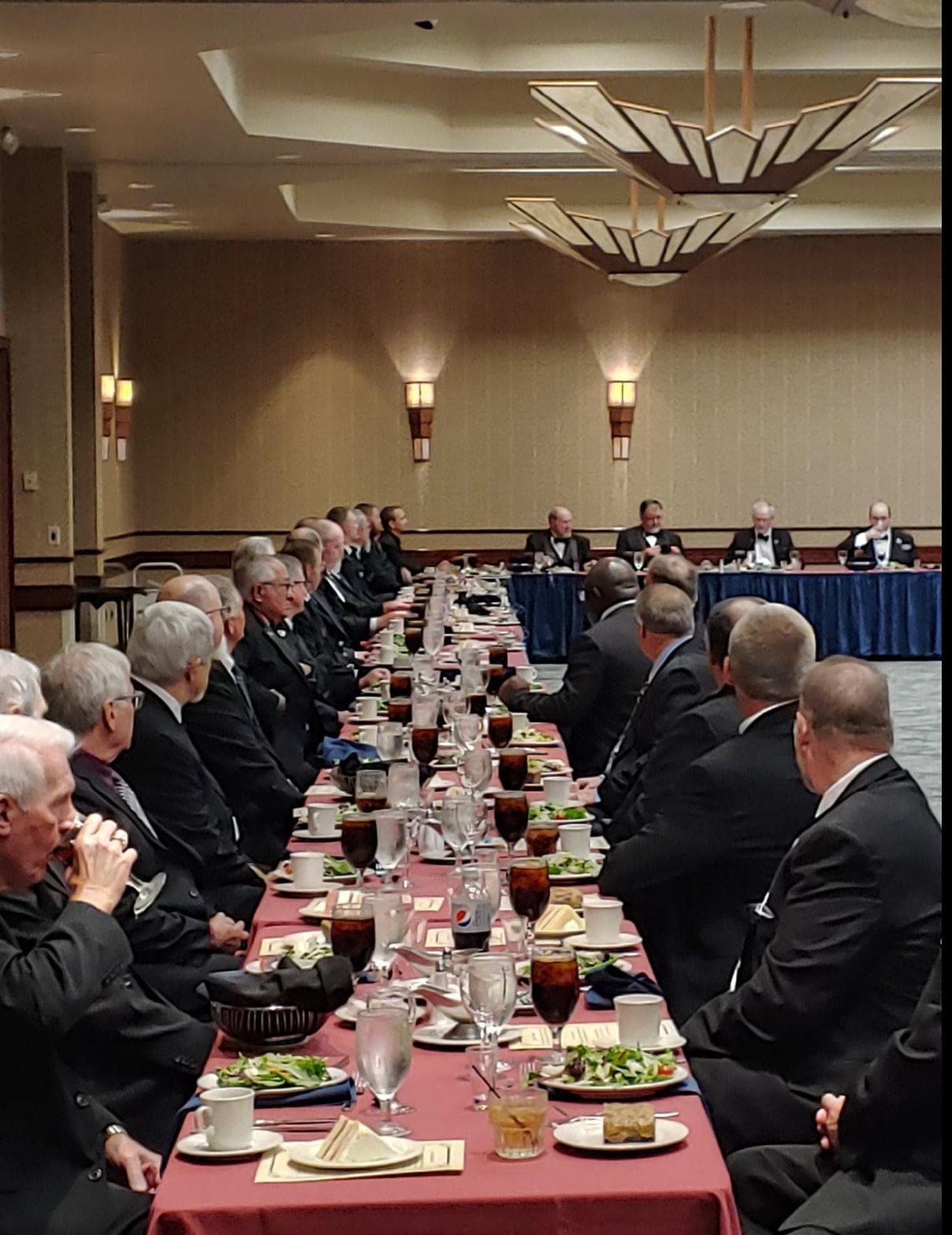
author of "Contemplative Masonry" and "The Contemplative Lodge." Brother Dunning made the point that, though our numbers have indeed fallen and continue to fall, we are in a renaissance! He continued by explaining that our leadership cannot continue to attempt to preserve the past, and we cannot take long shots at membership. Our downsized situation can be viewed negatively or even as dire, but the low numbers allow our leaders to be agile and adaptable, not unlike a spear. A sword has limited reach; an arrow's trajectory cannot be changed once loosed, but a spear, reaching farther than a sword, can be pulled back and its aim corrected. We are in a position of choice.
Brothers, let's make a choice. Both candidates and new brothers have made their expectations of Freemasonry clear. They're looking for an experience that lives up to the reputation of the world's oldest fraternity. They're looking for belonging, for the contemplative spiritual journey of self-improvement that our ritual says so explicitly that it is. Let us make this conscious decision to know ourselves and our fraternity through contemplation and travel toward the light. If we do that, worthy men will follow.
13
What's the Rush?
Derek L. Hockett, Grand Junior Warden
*** (Three raps on the proverbial door of the mind.)
Do you have a minute to talk about One-Day Conferrals? Or maybe two to think about them?

I have had the opportunity to share in conversation with many Kansas Masons who have expressed varying opinions, some in favor of and some in opposition, to this controversial practice. The intent of this article is to share thoughtful juxtaposition to some of the justifications supporting One-Day Conferrals. Some of those supporting positions and my counter-opinions are as follows:
We need One-Day Conferrals to help fend off the membership decline. The current decline we are experiencing due to the deaths of aging brothers is not one we can stem with One-Day Conferrals. Our time and effort will be better spent improving the Masonic experience so we can retain as many brothers as possible.
We need members to bring in dues revenue. If our financial situation is so dire that we feel like we just need warm bodies to pay dues, we have completely missed the plot. Financial disarray likely means we are not able to provide a fulfilling Masonic experience to new brothers in our Lodges.
We don’t have enough proficient brothers to perform degree work. Nothing hurts the Masonic experience worse than shoddy degree work (incorrect floor work, constant prompting, too many prompters, incorrect pronunciations, etc.). This is especially true in the First Degree. Reading a degree directly from the Cipher violates our bylaws and sets the wrong example. These reasons do not provide enough justification for One-Day Conferrals. There is plenty of help to perform a degree if application is made. For more sparsely populated areas, a Lodge might have to request courtesy work and travel to another Lodge that can assist. There are also
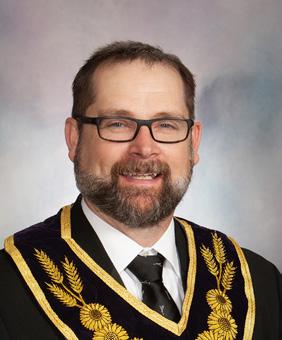
several traveling degree teams around the state that can help. It might be possible that smaller lodges, if they lack the manpower to confer degrees, may be unable to properly mentor a newly raised Brother. Putting on a One-Day Conferral for a Lodge that can’t provide the ideal Masonic experience for a new Brother just feeds our revolving door membership problem.
We have a backlog of candidates and don’t want to lose them by waiting too long. Are we afraid a potential candidate will get cold feet and look for another organization to join? If so, perhaps that man is not suitable for Freemasonry. If a Lodge is so big that it is bringing in large numbers of candidates, they are probably large enough that they could form a contingent of Brothers to charter a new Lodge. More Lodges with proficient ritual teams mean less need for One-Day Conferrals. Understandably, that only works in areas with a large enough concentration of Brothers to fill the seats of a newly chartered Lodge.
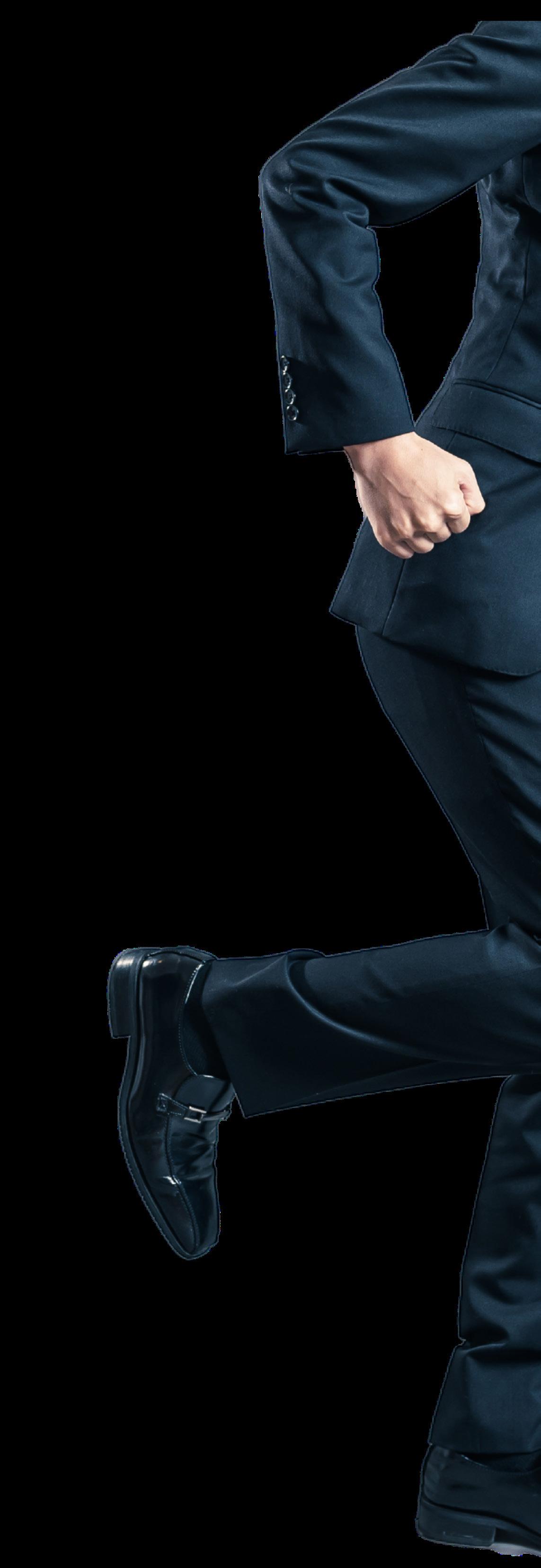
Proving proficiency and memorizing ritual is arcane and hurting our fraternity. The invention of the printing press and growth of general literacy in society leads some to believe that traditions or oral recitation are no longer relevant. When we lose the ability to pass on our stories and ritual mouth-to-ear, we abandon the time-honored storytelling tradition. The intimate nature of sharing stories mouth-to-ear can be the
antidote to the cold, disconnected world that rapidly developing technology is giving us. This also requires us to have capable mentors in our lodges that can provide new Brothers with an environment that supports their learning style and abilities.
Degree work should only be performed by Grand Lecturers in one-day conferrals.
A One-Day Conferral performed by a select group of ritualists undoubtedly sets a high bar and demonstrates to new members how
degree work should be performed. However, it deprives other Brothers of the opportunity to prepare and participate in the crucible of degree work by performing what they’ve practiced. One-Day Conferrals, potentially, make the whole craft less proficient by decreasing the number of standard degree conferrals for those who are qualified to repeat what they’ve practiced.
Men today are too busy to follow the standard path and prove proficiency.
Freemasonry gives us so many lessons about how to manage our time. Staying from those lessons and bending to the unreasonable demands of modern life betrays the opportunity Freemasons can leverage to help the world slow down and be more thoughtful and insightful.
A man needs a one-day conferral due to terminal illness or armed forces deployment.
If a man wishes to be interred as a Mason upon his death, he need only
Your Masonic MembershipHow Much
is it Worth to You?
Submitted by Chester Peterson, Jr., Master of Lindsborg Lodge No. 397 W
Unbeatable wager: Every Lodge in Kansas has had one or more Brothers fail to renew their annual membership dues every time the Lodge has approved a necessary increase in membership dues.
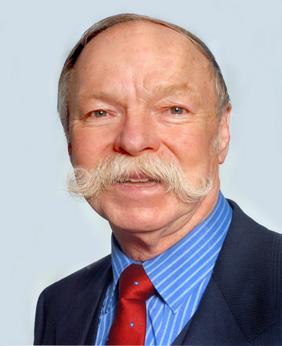
How about your Lodge? Yes, it is discouraging but almost a guaranteed truth.
When contacted, a departing Brother will almost always say, “Ah, you’ve raised the dues, so they’re ‘way too high now. I can’t afford it.” After this conversation, he may calmly drive off for coffee in his brand-new $76,000 pickup.
The fundamental question is just how much is your continued membership in your Lodge worth to you?
How much should a candidate pay to receive his three degrees? At what point do dues become out of sight for even a devoted Brother?
Another basic question is, “ Have we current Brothers lost sight about the value of Masonry to each of us?”
Some perspective:
Looking for a pen, I recently came across a small booklet in the back corner of a drawer in our Secretary’s desk. It was the “By-Laws of Lindsborg Lodge No. 397,” adopted March 25, 1912.
Some quite interesting dollar amounts are included in its fragile pages. They illustrate the effect of inflation and, even more importantly, how valuable our past Brothers considered their ties with Masonry. I’ve converted these 110-year-old amounts to today’s
money using an inflation calculator I found online.
Back then, in 1912, annual dues were $6. Ah, only $6. But, converted to 2022’s equivalent value, the dues would be $172.47! That’s an increase of slightly more than 28 times.
The pertinent question, one I’m really hesitant to ask: How many of our Lodge’s present members would have the determination to pay such dues every year?

A candidate intending to achieve the three degrees in 1912 would have made an investment of $40. That’s the same as $1,149.78 in today’s money! Rather than a lump sum, he could pay $20 for the First Degree and $10 each for the Second and Third Degrees; now that would be $574.89 and $287.45 twice.
Secretaries were required “… to enter into and furnish a bond in the sum of $200 to be approved by the Lodge for faithful performance of his duties.” Today our Lodge doesn’t require such a bond of the Secretary. But, if we did, it would amount to $5,748.91. However, on the plus side, the Secretary received a salary of $100 a year to be paid quarterly, which now would be $2,874.46.
Obviously, most all of our past Brothers expected to make personal sacrifices to become and continue as Masons. Just as obviously, they respected Masonry so much that they wanted it to be a large part of their lives—and at whatever the cost they would be most willing to somehow afford it.
Can we say as much now, over a century later?
Do Masons Exchange NFTs ?
Submitted by: Rick Riechert, PGM, Hancock Lodge No. 311
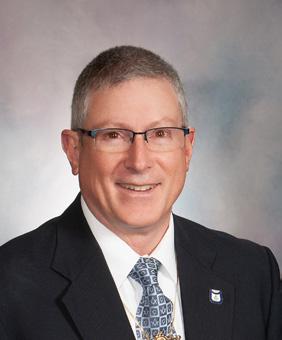
I ran across a new term recently: “Non-Fungible Token.” The word “token” caught my attention, but it was the term “fungible” that naturally excited my curiosity. It spawned two primary questions: “What does fungible mean?” and “Do we Masons exchange fungible or non-fungible tokens?” To answer the second requires the meaning of “fungible.”
“Fungible” apparently only exists in the adjective form. If you take the root of the word “fungi,” you get a noun that means the plural of fungus; that stuff that grows on the north side of trees and, colloquially, below noses on some faces. But fungible does not refer to fungus/ fungi, so a tree cannot be fungible, such as being ready for fungus to grow on its north side. Nor can it assume a verb form; to funge. I don’t think I have been funged. It doesn’t sound like a very comforting activity. So, all we have is the adjective “fungible” to work with.
The official definition of fungible from MerriamWebster online is: “Capable of mutual substitution: Interchangeable: Being something (such as money or a commodity) of such a nature that one part or quantity may be replaced by another equal part or quantity in paying a debt or settling an account.” In the context that I saw the word, it was talking about things that could not be copied or substituted; non-fungible tokens or NFTs. It’s a relatively new term (2017) that succinctly describes digital assets, such as Bitcoin, Dogecoin, and other cryptocurrencies. It’s “a unique digital identifier that cannot be copied, substituted, or subdivided, recorded in a blockchain, and used to certify authenticity and ownership.” I suppose the only time authenticity and ownership need to be verified is at the time of exchange. That way, the receiving party knows that the sending party is providing the Real McCoy.

As Masons, we exchange “digital” tokens using digits of the hand. Though the token itself has no intrinsic value, it verifies the authenticity of those with whom we exchange them. Each token is unique, and once

exchanged, there is nothing tangible remaining with either party. You can’t take one home to show the family or display your best one on the mantle. However, the value of having exchanged tokens continues to grow and can become limitless. It’s as if the token instantaneously increases in worth to the possessor every time it is exchanged. The token exchange becomes the currency that fuels the society of friends and brothers of our great fraternity.
Do Masons exchange non-fungible tokens? Indeed, we do. It’s authoritative evidence of a brother’s claim to his portion of all the proverbial gold in Masonry. Each token is as unique as the brother who possesses it. Yet, its use, method of exchange, and worth are universally understood by everyone in the society. Fortunately, for Masons, it takes little effort to produce the token. It is hanging there, by your side, ready for your next exchange of an NFT.
A Masonic Money Obligation?
Submitted by James A. Marples, Mulvane Lodge No. 201
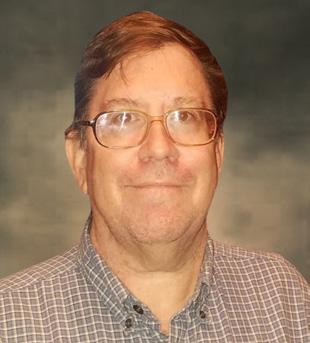
The United States Congress was formally established on March 4, 1789.
We must get this date clearly fixed to understand better that there was an earlier governing body called the Continental Congress. The Continental Congress was a series of legislative bodies which met in the British American colonies and the newly declared United States just before, during, and after the American Revolution. Their founder was The House of Burgesses.
By the spring of 1775, colonial leaders were worried due to the threat of British martial law in Boston. Increasing constraints on trade had led their forces to a battle against the crown. However, the American revolutionaries encountered a minor problem on their way to the front; they lacked the funds necessary to wage a prolonged war. On June 22, 1775, the Continental Congress issued $2 million in bills of credit and printed paper and coin money; "Continentals" or "Continental Dollars" refer specifically to the paper currency issued at that time.
Continentals were printed but quickly lost value. This was because the printed money was not backed by a physical asset such as gold or silver, and too many bills were printed. Even Brother George Washington

stated, "A wagonload of currency will hardly purchase a wagonload of provisions."
As time progressed, later Continentals did include a pledge to pay a corresponding amount (usually in milled Spanish Silver) as collateral. A unique aspect is that some 1779 Continentals bear the (Masonic) All-Seeing Eye along with the pledge. A 1778 $50 Continental was printed with a very familiar looking "Unfinished Pyramid," denoting a nation that is still a work in progress. These influences were later incorporated into portions of the modern Great Seal of The United States and are currently still depicted on our modern $1 bill.

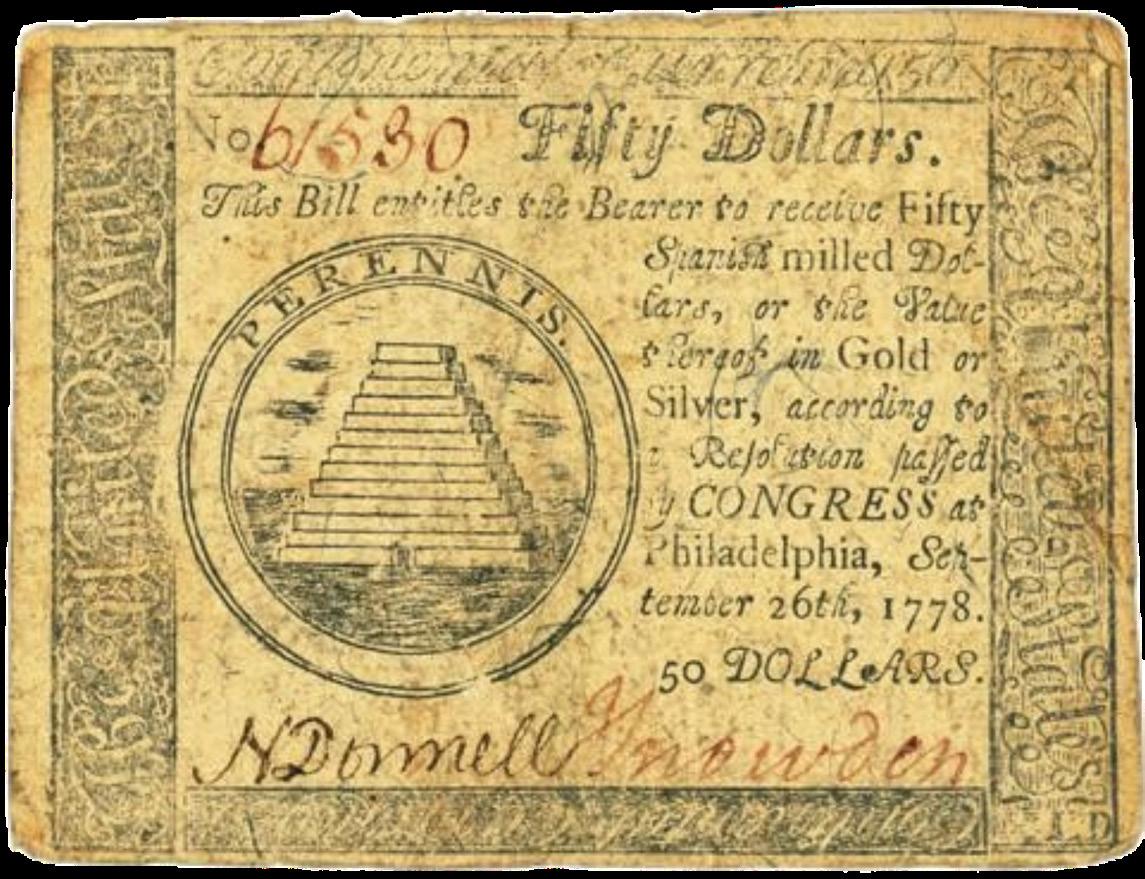
To an outsider, if a coin or paper currency note just had a promise, it would be considered an "IOU." It might be redeemed faithfully, or it might not. Inserting an image of "The All-Seeing Eye of God" would carry no weight among atheists.
Many Masons and non-Masons claim that the "AllSeeing Eye of Providence" Or "The All-Seeing Eye of Almighty God" has been used since antiquity as a symbol for God. In that respect, they are correct. Sadly, some debate whether the "All-Seeing Eye" is a Masonic symbol. The correct answer lies in the context. If the symbol of "The All-Seeing Eye" is used in the context of
friendship, "Brotherhood of Man under the Fatherhood of God," and is meant to remind us of our honorable pledges inside and outside of the Lodge room, then, yes indeed, it becomes a "Masonic emblem."
It is almost parsing words, but a Continental Dollar was not a pure fiat currency (as we know it now). Continentals were initially not backed by anything. Today's American paper money is likewise not backed by anything (although once pegged to the value of silver or gold, as in SilverCertificates or Gold-Certificates). To everyone's surprise, Continental paper dollars often plummeted below face value. When that happened, Continentals were almost worthless. In today's jargon, it would almost be akin to buying a gallon of milk and offering to pay with Monopoly money. The customer would be laughed at and rebuffed. Continentals needed an element of "trust." The addendum of "The All-Seeing Eye of Almighty God" or "Unfinished Pyramind" wasn't a ploy but a signal of a bond of trustworthiness and reliability. As time passed, our National Motto, "In God We Trust," says it all. Just this simple addendum instilled public confidence. Undoubtedly, many Masonic Brethren saw those symbols and their accompanying pledge (which was tantamount to a solemn promise, obligation, or vow) stating that the money had legitimate "worth" which could be vouched for and believed.
Papers Sought for - Transactions

a KSLOR First Edition
The Kansas Lodge of Research is looking to put a long-term goal into action: publishing Transactions, a collection of top-quality Masonic research and philosophy from within the Grand Lodge and beyond.
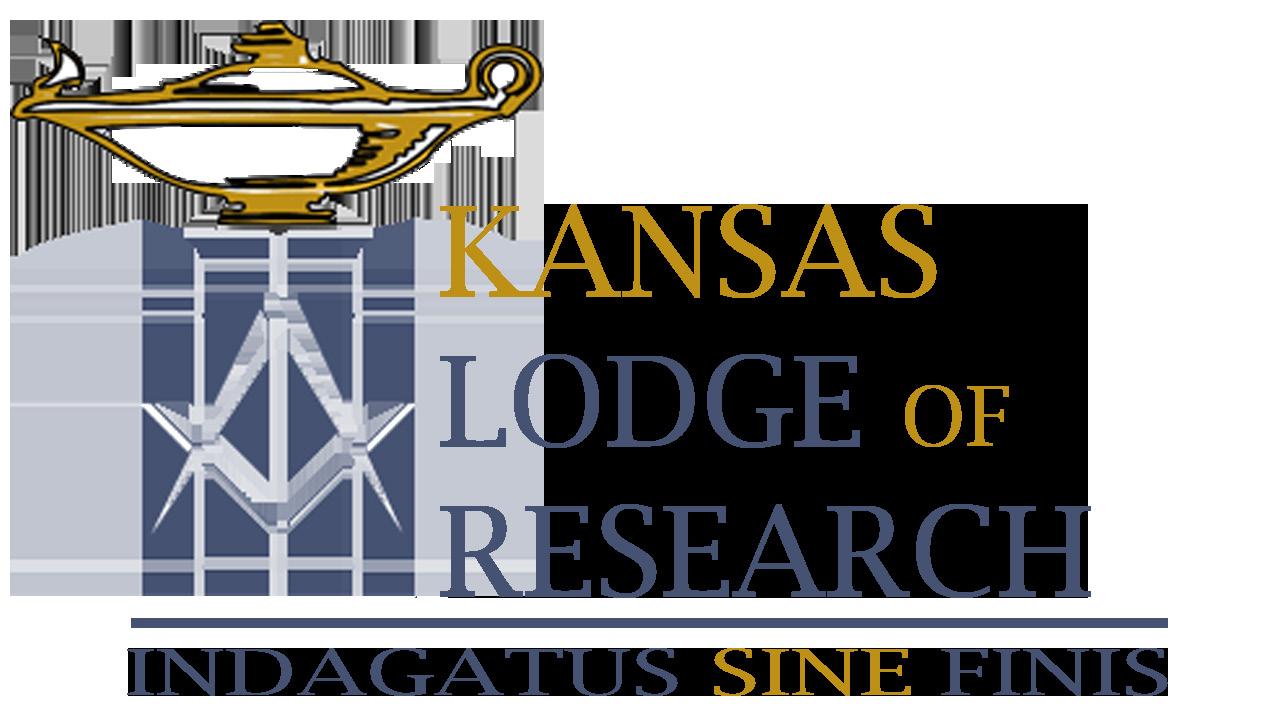
The goal of Transactions is no less than having the best Masonic authors you’ve heard of today and the ones you’ll be talking about in five years.
There is no maximum word count, although we’re not going to publish a whole book alongside everything else; there’s no minimum word count either, as long as it is a fully fleshed paper. Papers can be on any subject related to Freemasonry, Masonic history, appendant bodies, etc., so long as they are suitable for a general Masonic audience.
The submission period ends soon. All authors chosen for publication will receive a free electronic copy of Transactions. Anyone who submits may use it as their submission to receive academic credit and a discounted membership to the KSLOR (if otherwise eligible).
SOURCES / RECOMMENDED READINGS:
- "The Birth of The Continental Dollar: Initial Design, Ideal Performance, and the Credibility of Congressional Commitment" by Farley Grubb.

- Mackey's Encyclopedia of Freemasonry by Dr. Albert G. Mackey, M.D., 33º and K.T.
- Readers Digest "Dollar Bill Symbols" November 25, 2019
- Conversations of Freemasonry by Henry W. Coil, Sr.
Papers should be submitted to Transactions@KSLOR.org as should any questions about the process.
On behalf of the Editorial Staff, we look forward to reviewing your papers and working with you for this historic first edition!
Matthew W. Parker Editor-in-Chief, Kansas Lodge of Research
: and there was
Submitted by Herbert F. Merrik, DSM, Hancock Lodge No. 311
Light is the first significant symbol introduced to the new freemason; it continues through his progress in the craft degrees. Some of the most common definitions are as follows:
1. The natural agent stimulates sight and makes things visible.
2. The amount of illumination in a place or a person’s share of it.

3. The object from which light emanates, such as the sun, a lamp, a candle, a fire, etc.
4. The quality of brightening with animation.
Freemasons have another definition. It is that definition that will be explored in this article.
The first and most important qualification for becoming a freemason is a “belief in a Supreme Being.” From this belief comes a second belief that all things were made at the creative spark or will of the SUPREME BEING. Freemasons are told that “light” is one of the critical words that form the fabric of Speculative Freemasonry. Truth and wisdom constitute part of the light that pervades the whole basis of Freemasonry to the extent that Freemasons are even called “the Sons of Light.”1 In the First Degree alone, the word is introduced to the candidate from three perspectives. The light of the physical world is in the form of the three lesser lights, the emblematic greater lights with the square and compasses, and the spiritual lights in the form of the volume of the Holy Scriptures. The term is used throughout masonic and profane literature as the source of goodness and happiness.
The Brother advances through the three degrees. He asks for Light, More Light, and Further Light in Masonry and is brought to light in each of the degrees. What exactly was the “light” that you received? “The
1 The Sons of light are referred to in the Dead Sea Scrolls particularly in the scroll known as the “War Scroll”. It is also found in the New Testament in the Gospels of Luke (16:8) and John (12:36) and Paul’s Letters to the Ephesians (5:8) and 1 Thessalonians (5:5)
essence of Freemasonry is not the repetition of the ritual nor the safeguarding of secrets, but the regeneration of the Brethren.”2 Candidates generally know little about Freemasonry. We acknowledge this in our lecture when we discuss why a candidate might have sought admission. They usually join because they have relatives or friends who are Masons or believe Masonry to be an institution devoted to high ideals and benevolence. Some may even think it may be socially desirable to be connected to a lodge. Their initiation too often is a formality, not an actual awakening into a different and new quality of life. Unless such an awakening eventually ensues, their membership has less influence upon them than they would be joining a social club.
Discovering light does not happen as part of receiving a degree, but the degree does lay the foundation. The concept of light, or the word itself, has always, from time immemorial, occupied a dominant position in the philosophies of all ancient religions and mystic orders. In ordinary language, the word is given several definitions, which on reflection, tend to lead to a realization of deeper meanings that have adorned the philosophies of ancient mystic orders, including Freemasonry.
Masonry was designed to teach self-knowledge. But self-knowledge is much deeper, vaster, and more challenging to obtain than is popularly conceived. The formal passage can’t acquire it through the three degrees in a few weeks or months. The knowledge that cannot be achieved fully until a difficult path is strenuously pursued leads its followers to its attainment. This is the sole aim and intention of Masonry. Behind its more elementary and obvious symbolism, behind its counsels to virtue and conventional morality, there exists the framework of a scheme of initiation into that higher
2 Walter Leslie Wilmshurt: Born in Chichester, Wilmshurst was initiated as a Mason in the Huddersfield lodge in 1889,[2] having moved to the town to become a solicitor,[3] for a time becoming president of the Huddersfield Law Society. He died in Huddersfield.[4]In 1927, he founded the Lodge of Living Stones No.4957, in Leeds, which was set up purely in order to study the more esoteric meaning behind Masonic ritual and symbolism.
path of life where the secrets and mysteries of our being are to be learned; a scheme that reproduces for us the main features of the Ancient Mysteries that were proscribed centuries ago. The purpose of teaching what is called “the Mysteries” for imparting to suitable and preparing minds for the truths of human life, specific instructions about divine things, human nature, and human destiny.
To sum up the import of the teaching of the three degrees, it is clear that from degree to degree, the candidate is being led from an old to an entirely new quality of life. He begins his Masonic career as the natural man; he ends it by becoming, through its discipline, a perfected man, reborn. To attain this metamorphosis, he is taught first to purify and subdue his nature; then to purify and develop his mental nature; and finally, by the utter surrender of his old life and losing his soul to save it, he rises from the dead a Master, a just man made perfect, with larger consciousness and faculties. He becomes an efficient instrument for use by the Great Architect of the Universe (GATU) in His blueprint of rebuilding the temple of humanity, capable of initiating and advancing other men to participate in the great work of improving the world.
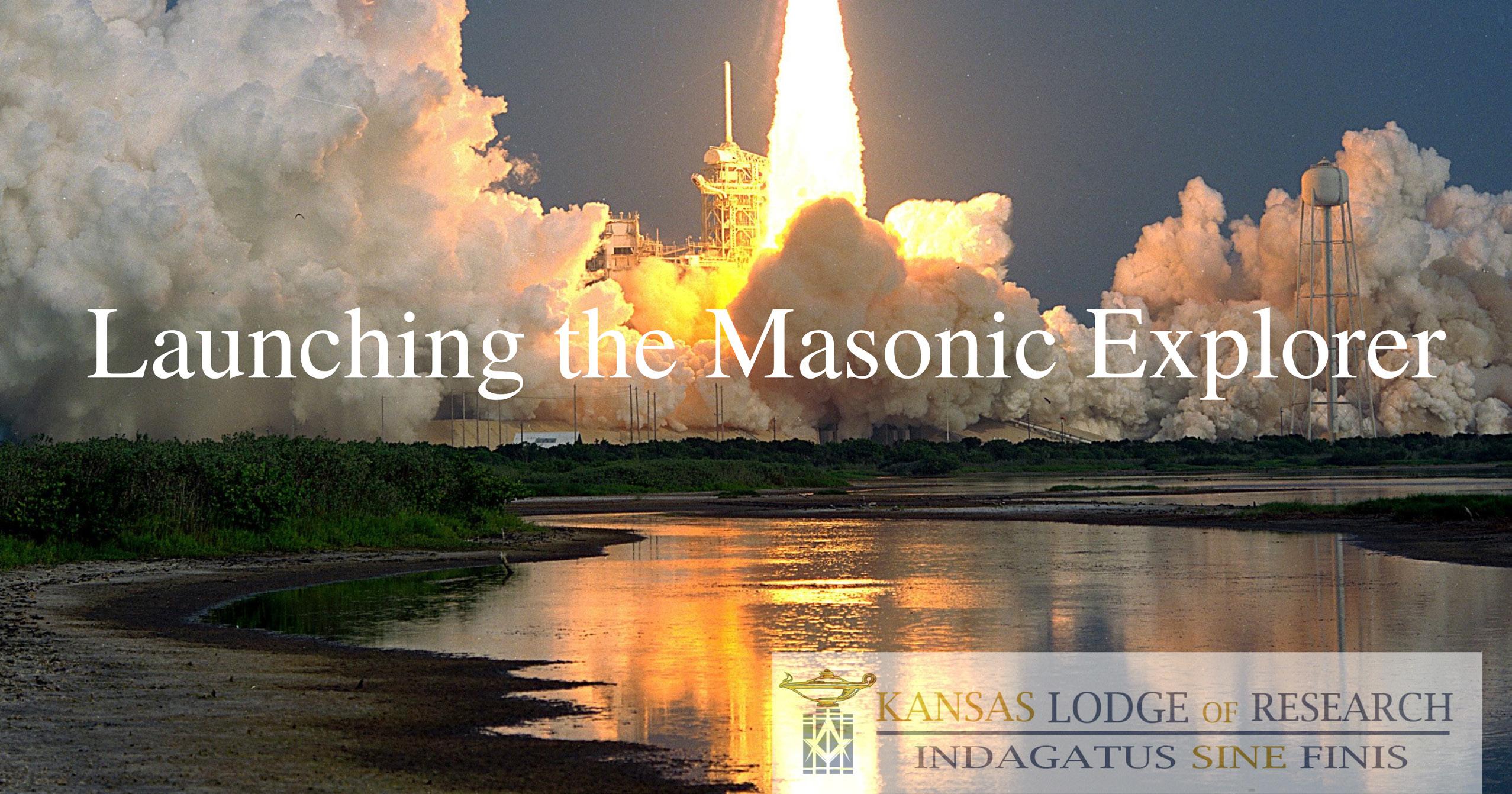
Our teaching is purposely veiled in allegory and symbolism, and the more profound meaning does not appear in the ritual itself. The deeper secrets in
Masonry are heavily veiled and closely hidden. They exist concealed beneath a great reservation and are disclosed only to those who act upon the hint given in our lectures. To discover the mystery of light takes time, reflection, and conversation. It must be explored. This is best done in a social setting where one can freely agree, disagree, or question the great questions of our lives. The meaning of Masonry or light, therefore, is the rebirth of the mason. He is to cleanse himself of vices or at least learn to temper them and examine his soul and ready it for when the returned spark of life that his soul is returned to the place whence it came, to the GATU. To have the spirit rest in God and to have sincere and unwavering faith in truth and goodness is the inner secret of a MM.
The lesson is not intended to be simple or complete. In the ancient orders, this soul-searching or soul-building took a lot of work and dedication. This is still true today. We now have a glimpse of that goal that aim, that light. We each are now encouraged to examine that which is within us to eliminate the weaknesses and the evils we all wrestle with. We must take the time in our lodges to go beyond just doing degrees and provide opportunities to study the lessons. It does not always need to be in a formal meeting but at typical meals or mentoring with new and old masons.
A Place That Is Not A Place In A Time That Is Not a Time
Submitted by: Duane A. Marshall, Overland Park Lodge No. 436
I recently attended a virtual Kansas Lodge of Research monthly event. We had a great discussion about the Ego and Masonry. The discussion took many twists and turns and was a great discussion.
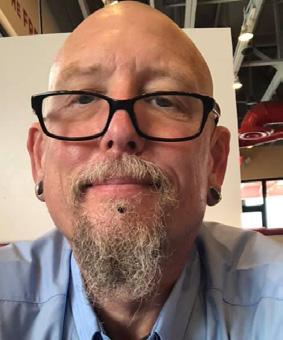
One of the things I took away from this discussion was, "What is Masonry and the Lodge?" Is Masonry just a thing we go and do, or does it have a real and serious impact on our internal selves? Well, the easy answer is yes. Of course, it is. That is the "public" and "expected" answer, right?
I want to ask you, when does "Lodge" start? For some, it is a set point in time, such as on the second and fourth Mondays at 7:00 pm.
But is that when Lodge starts? For some, the answer may very well be yes. But if you want to get the most out of your Lodge and a, dare I say, "Masonic Experience," it starts well before then.
The Lodge is (or should be anyway) a magical experience. We step into the meeting room and shut out the rest of the world. (I would mention that, as of late, I do not like the term' meeting room.') We "clear the space" and go around from the East, West, South, etc. and open our Temple. In doing so, we are setting that time apart from our day-to-day. We invoke the deity's blessings to rest upon our meetings and among our Brothers. This sounds like many of our spiritual groups or faith systems, doesn't it?
Does the Lodge start when the Tyler is notified the Lodge is going to open and he should act accordingly? No, it does not. This is just the beginning of our communion with deity and our Brothers.
During the Lodge of Research event, freely accessible to all members, we discussed the Temple as a "Sacred Space." As I have said above, we conduct our opening ritual to purify the physical space to invite deity and our Brothers. But what about before we get to Lodge? I feel that is just as important, but it is not talked about nearly enough.
What do you do to physically prepare for your evening? When we go to a place of spiritual worship, do we just get in the car and go? Or do we give it some serious thought as to our dress and mental attitude? Do we cleanse our physical self, grab a shower, etc., visualize the mundane world being stripped away, and envision what we wish to achieve with our time in Temple? The Lodge is its members, and the Temple is the "Meeting room." Maybe have a shirt and tie, or other special clothing, in the preparation room that is special for your time. Again, remove the mundane and clothe yourself with something reserved for the sacred.
I am not trying to rehash the entire event, but the discussion made an impression on me and made me think more about things already brewing in my mind. If you want to hear the actual discussion, it is available in the Lodge of Research online archives.
Over the last several years, we have discussed the "Masonic Experience." The focus has been on what Lodge's are offering their members. I feel my question is just as important. What are WE doing to prepare ourselves physically, mentally, and spiritually to receive and build on that experience?
Take a minute and meditate; cleanse your physical self and spirit before entering that sacred space. Evaluate how you feel and whether there are differences in your outlook and what you get out of Lodge. You may be surprised at what time your personal Lodge experience starts.
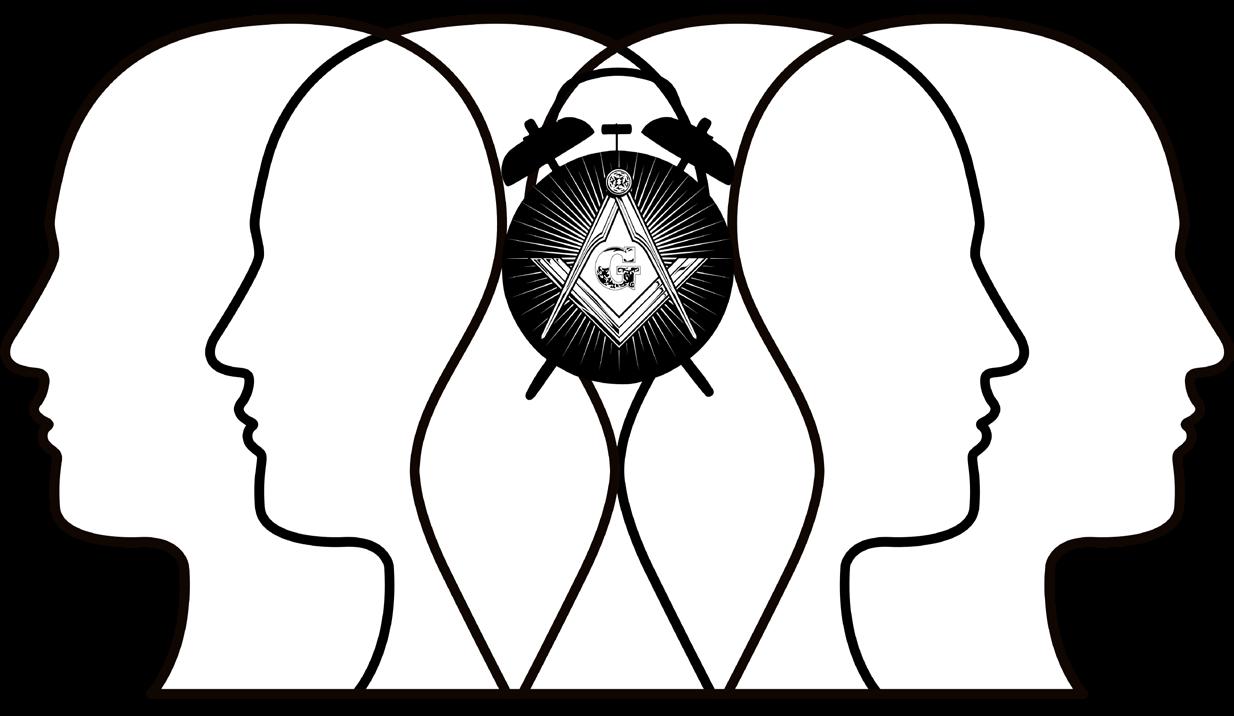
22
The Current Kansas HistoryMasonic Corn
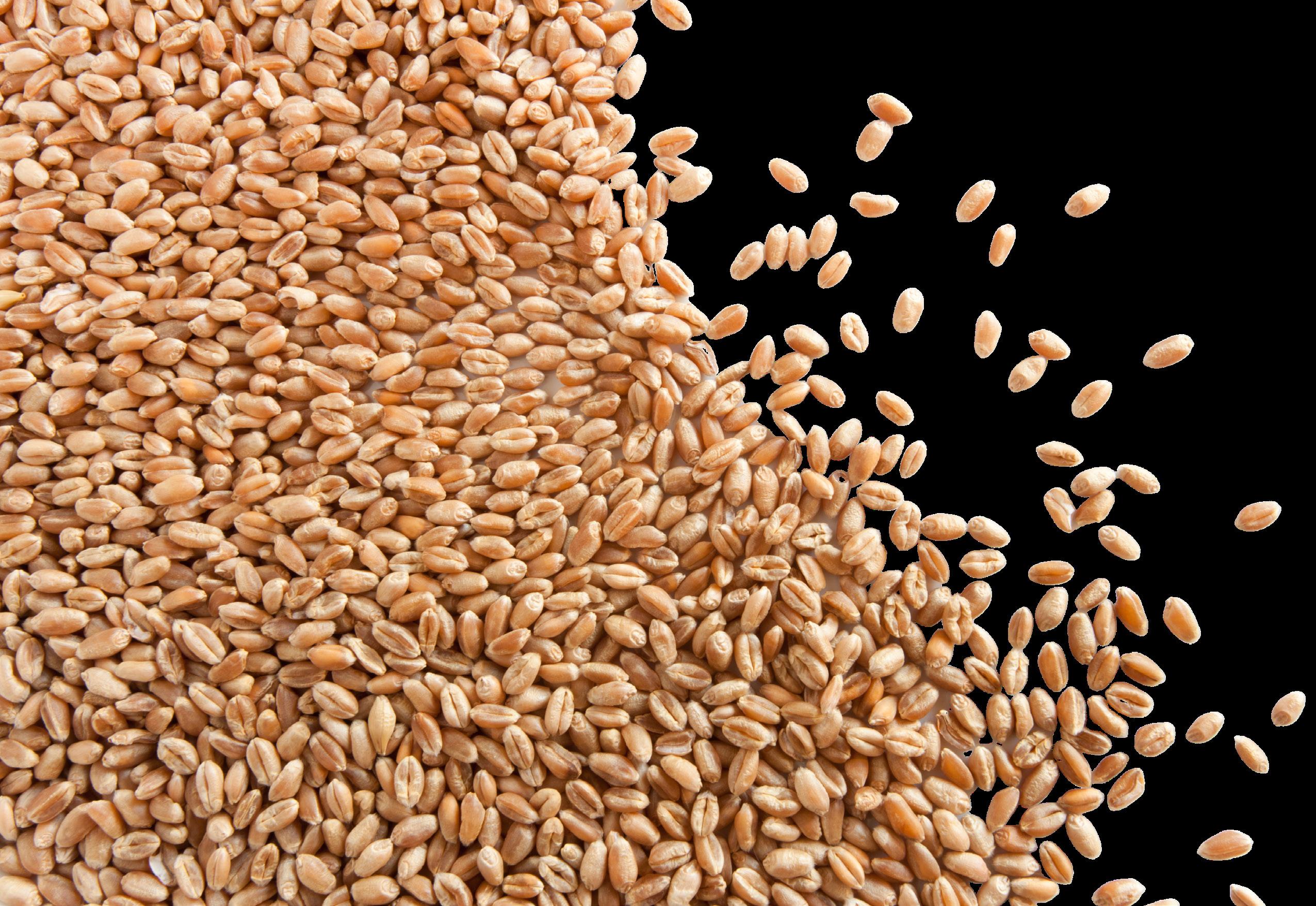
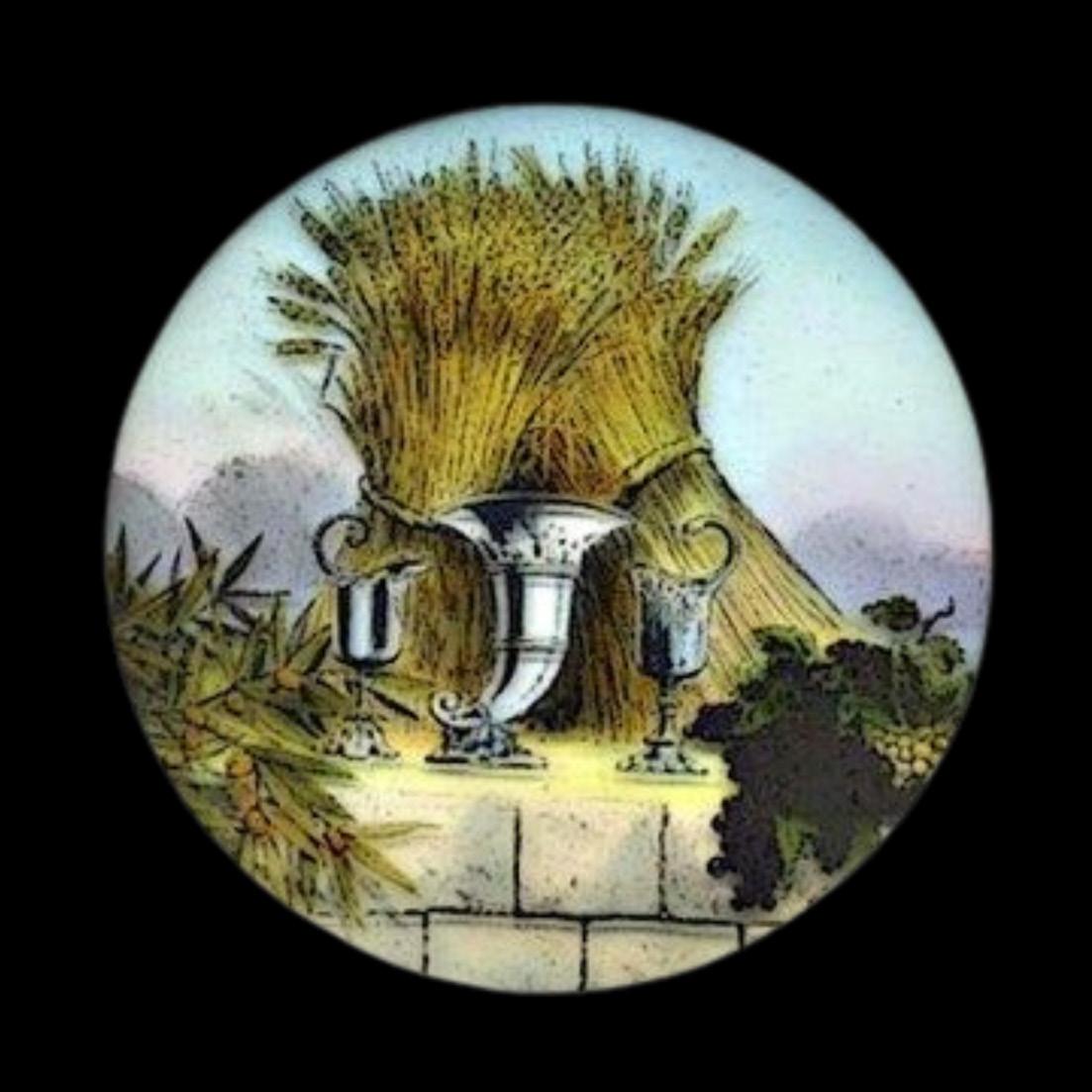 Submitted by Robert E. Miller, Mystic Tie Lodge No. 74
Submitted by Robert E. Miller, Mystic Tie Lodge No. 74
Corn; it's one of the symbols we use in our Masonic work that refers to the wages of a mason. Over some 300 years filled with cross-interpretations, the masonic definition of 'corn' seems to get a bit confused.
Corn is corn, right? What about maize, isn't that corn too? Corn is an ancient generic word for plenty and refers not only to what we modern folk think of as corn but also to other grains like barley, rye, and wheat. Corn, harvested dry, is a grain. In Kansas, our "crop of plenty" is wheat. "The Corn State" just doesn't seem to have the punch like "The Wheat State," does it? Between Ancient and Modern Masonry, many an evening has been spent discussing corn and who has the best answer.
The following is a breakdown of recent Kansas masonic
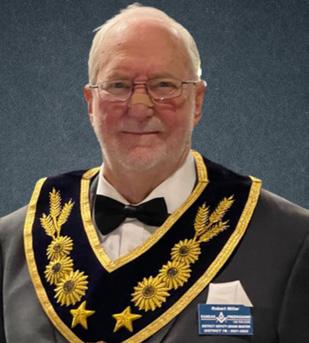
"history" about corn. To this author, this is an emotional story that also reassures us that Masonry not only takes good men and makes them better but can also make them exceptionally better. I feel that the following collectively demonstrates loyalty, a love of the Craft, and a continuing Brotherly love that supersedes the narrative being told.
This is a story of devotion to our Craft and our fellow man.
Installed just over a month, the Grand Master of Masons in Kansas, Mikel Stoops, makes an unofficial visit at the Stated Communication of Wellington Lodge. He desires not to receive any formal accolades that might be due him and meet "on the level" as any "normal" visiting Brother would.
Wellington Lodge was bequeathed an acreage of farmland almost ninety years ago from a Brother's widow's will (at his request). A report was given during the meeting by the Master about the projected wheat yield from the farm. At the end of the meeting, Brother (Grand Master) Stoops asked if the Grand Lodge could get some of our farm's corn (wheat) for usage in dedication and consecrating ceremonies. The Master's quick reply, "Yes, Sir. We will get you some." What an honor. Wheat, not just from a Kansas wheat farm, but one that belongs to a Lodge in Sumner County, the "Wheat Capital of the World."
Late June 2021
Checking to see how the ongoing harvest is progressing at the Lodge farm, the Master drives his pickup to the edge of the field. He exits the truck and slowly walks to where a combine is unloading. He ascends the side ladder with familiar ease, much as he had done thousands of times over the years as he climbed into the engineer's cab of a locomotive before he retired. Stretching out over the collection bin, he reaches as high as he can to get his Tupperware container under the dispensing auger to catch a freshly harvested golden sample. WAIT! What?! Why is he using a plastic container that will burp when closed and not a golden chalice or other fancified collection device worthy of the end destination and purpose? While it never happened on his trains, it seems the Wellington Master has minorly derailed the beauty of our story. Meanwhile, he smiles a bit, satisfied at his success in the first significant step in fulfilling the promise made by him on behalf of the Lodge.
Summer/Fall 2021
The Master has been thinking a lot about how the wheat should be presented and who should do the presenting. The three-term Master is a bit nervous about
doing such a "big" presentation in person. He contacts a man he considers a good personal friend and a familiar face in Wellington Lodge, Jim Miller. Jim is a Grand Lecturer who has spent many hours, some one-on-one, helping get the Lodge's proficiency back on track and the Lodge back to being a "working" lodge again. As the summer waned, in every conversation and phone call between the Master and Jim, the topic seemed to turn to that plastic container full of wheat.
Winter 2021
We didn't know it then, but the Master is told by his doctor that he has cancer. At Wellington Lodge's Annual Communication, he turns down a fifth term as Master but accepts his election as Treasurer. He is also appointed as Chairman of the Lodge's KMF Committee.
Plans for the Grand Lodge Annual Communication in March are being published. Under a new Master (a 7 year member), Wellington Lodge hasn't forgotten its promise. A wooden storage box for the Lodge's wheat, with an engraved square and compass, is commissioned. It is decided that Jim, still visiting the Lodge regularly as their estoric proficiency continues to climb, will make the presentation to the Grand Master.
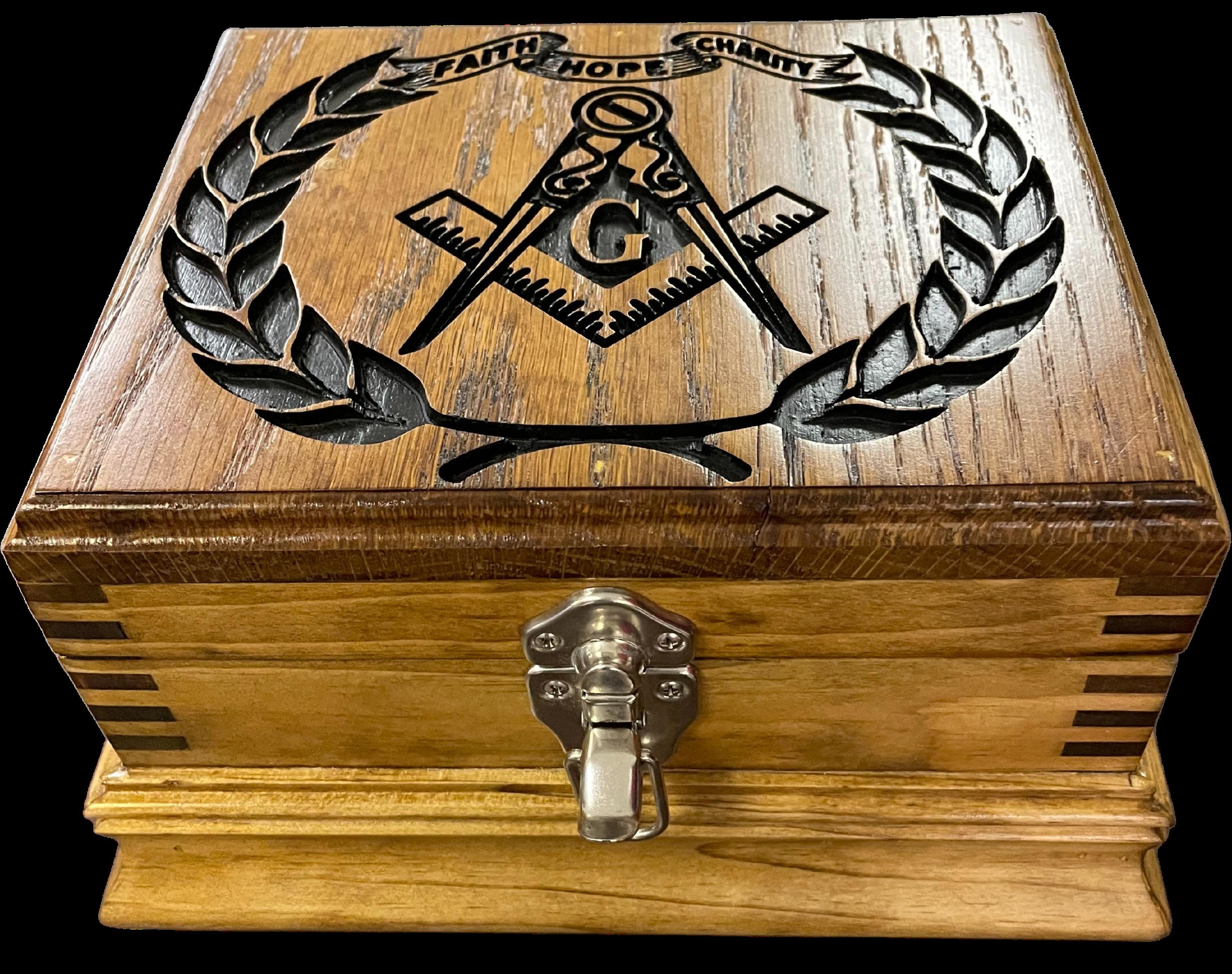
February 2022
The Master, the old train engineer, confides to Jim that the cancer is rapidly spreading throughout his body, and his days are numbered. He has one to three months to live; he hopes to be at the wheat presentation in March. Nine days later, he passes away. At the families' request, Jim arranges and leads the Masonic funeral service. It seems he hadn't talked much with his family about Freemasonry other than wanting a Masonic funeral, and Jim was asked many questions during this challenging time.
Several weeks later, the family calls Jim:
"Would you have any idea about some wheat in a Tupperware container under Dad's bed?"
"Don't get rid of that!
I'll be down this afternoon to get it".
24 April 27, 2021
Jim is given the container of wheat. It is still not in a silver or open golden vessel that would showcase and expose the contents, which should be moldy and starting to smell by now, for all to see. What he did receive was an airtight plastic container that would last until the final trumpet sounds, filled with Wellington wheat as fresh as the day it was separated from the stalk and then from the chaff. It seems our old friend knew exactly what he was doing. It is almost as if he knew his destiny regarding what he considered a noble purpose and, further, that it was the internal, not the external, qualifications of that container that were important. The Past Master still teaches without saying anything.
April 2022 & beyond
The official home of the ornate box and its contents is Emporia, at the Grand Lodge of Kansas office. Its official first trip was to Advance Lodge No. 114 in Florence on September 24 for their 150-year celebration and rededication. As of press time, the corn had most recently been used at Alta Vista Lodge No. 357 for their 125-year celebration and rededication.
The people directly involved in this story know the importance and impact the box of Kansas wheat can have for Masons and Lodges alike. No greater love between Brothers exists than when one (or more) come forward to assist another, never asking for anything in return or knowing whom their actions might ultimately aid in the end. A task started by one and brought to completion in the memory of the last great care of a Brother.
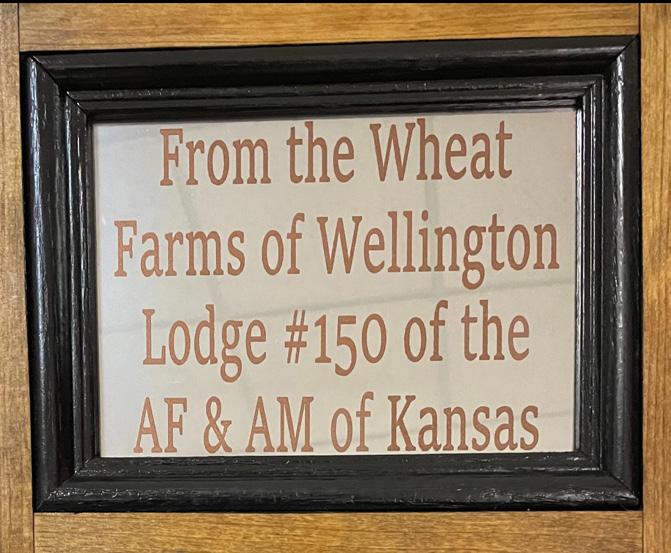
The duty is performed Most Worshipful Grand Master.
In loving memory of:
March 2022 Grand Lodge Annual Communication, Topeka
The engraved oak box, wheat safely inside, is presented to Grand Master Stoops. Those standing nearby might have noticed a glistening in the corners of the eyes of the presenter and recipient. Nearly a year has elapsed; the request has been fulfilled; the Kansas corn has been delivered; the wages are in the Treasury waiting to be paid out; a Brother both mourned and celebrated.
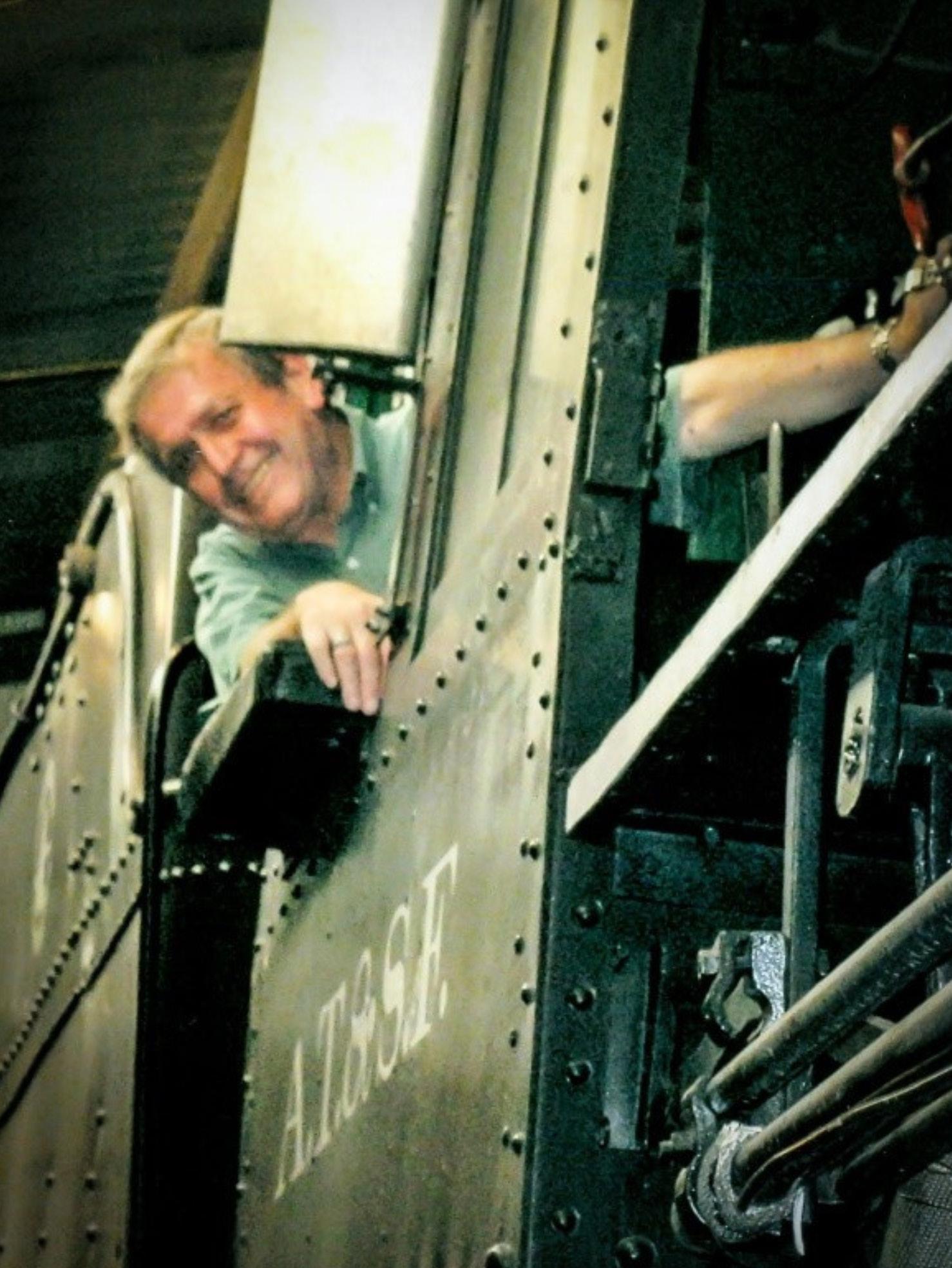
Jim "Doc" Emerson Master, Wellington Lodge No. 150, 2018-2021

25
Reeder appointed as 2023 Senior Deacon
By Kansas Mason Staff
Mark Reeder has been announced as the 2023-2024 Grand Senior Deacon Appointment. Deputy Grand Master Robert McClarty made the announcement on October 16 during a joint emblem presentation in Silver Lake hosted by Lake Lodge No. 50 and Loyal Chapter No. 176 OES.
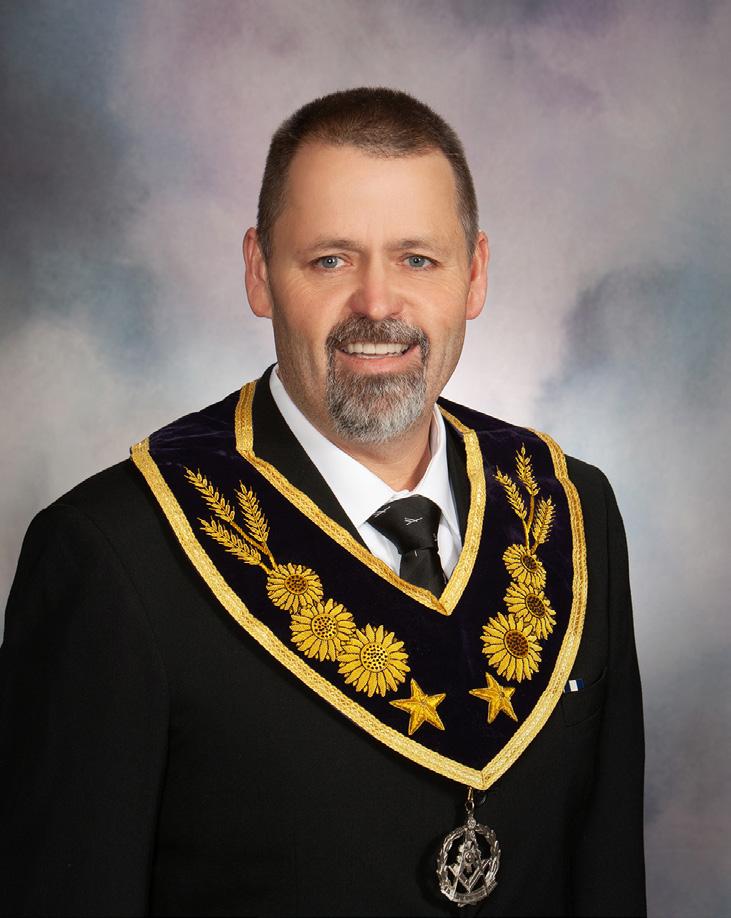
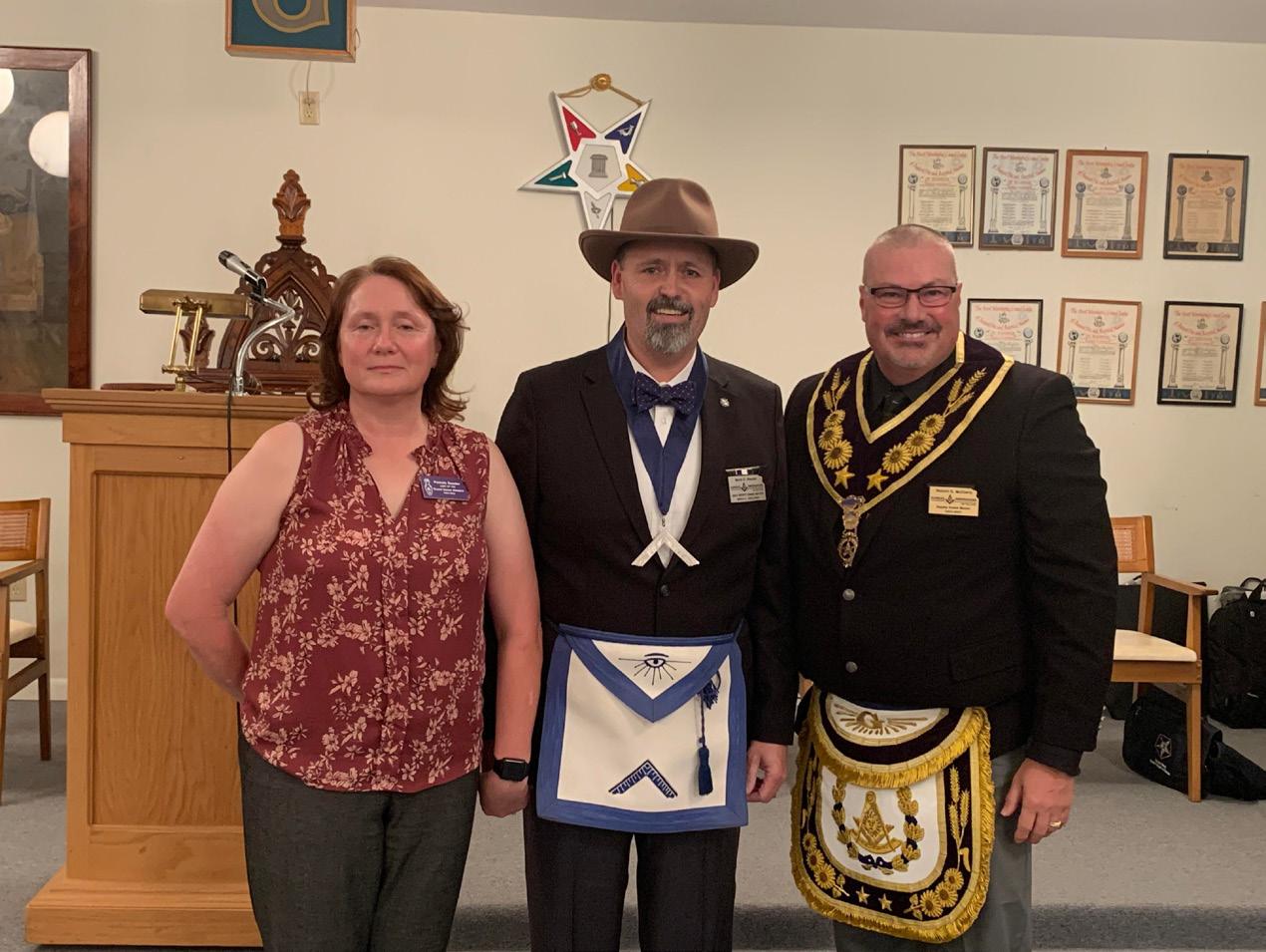
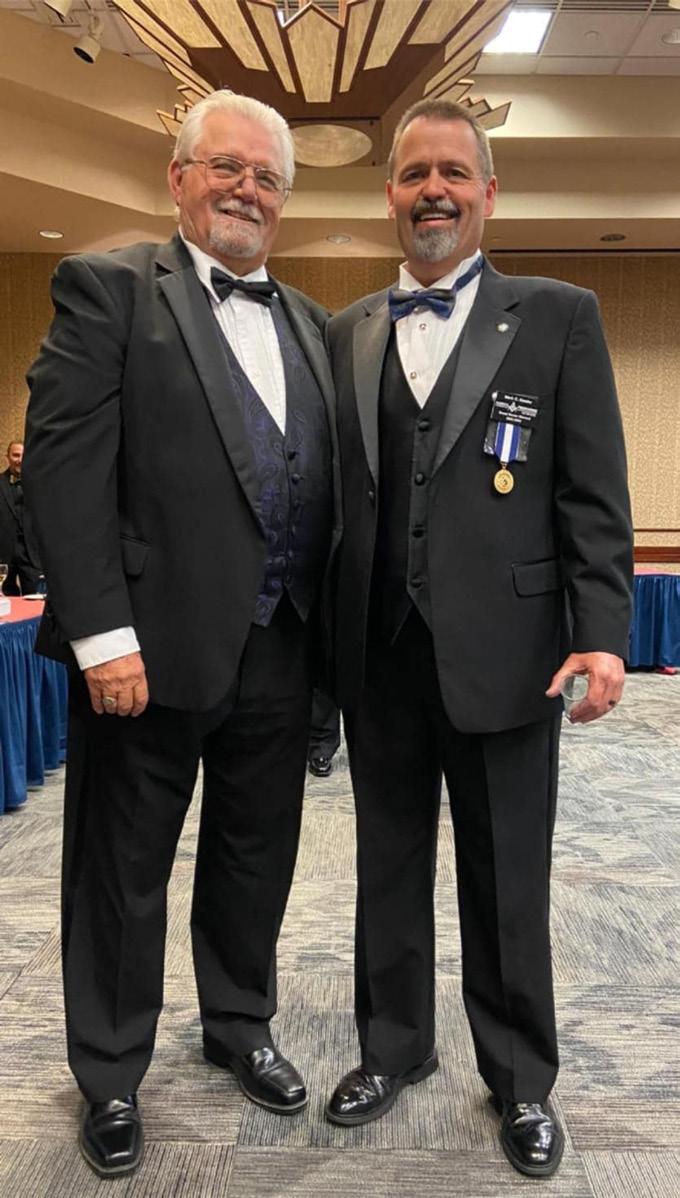
Mark, Master Of Lake Lodge No. 50, has served the Grand Lodge as a District Deputy Grand Master and is currently serving as the Area 5 Deputy Grand Master, as Grand Senior Steward, and Chairman of the Membership Committee. He is a member of the Kansas Lodge of Research and an honorary member of Justice Lodge No. 457. Mark also holds membership with several appendant bodies, Arab Shrine in Topeka and Loyal Chapter No. 176 in Silver Lake.
A 3rd generation Freemason, Mark started his Masonic journey at Bentonville Lodge No. 56 while living in Arkansas. Five months after becoming a Master Mason, his job brought him to the Topeka area, where he became a Dual member of Lake Lodge. In 2022 Mark was awarded the Grand Lodge of Kansas’ Distinguished Service Medal, one of our Craft’s highest honors.
Mark and Pam, his wife of 24 years, live just outside of Silver Lake. They have three adult children and recently became grandparents this past February. With over 30 years working in the transportation/ trucking industry at different levels, Mark has been the General Manager at Hoyt’s Truck Center for the past 12 years.
Mark stated, “I am honored to be selected to serve the Craft as Grand Senior Deacon. I will do my best to properly apply the working tools of our profession and continue the legacy of servant leadership that our current Grand Master and Past Grand Masters demonstrate.”
If elected by the Kansas Craft, Mark will serve as Grand Master of Masons in Kansas in 2027-2028 and would be the first Lake Lodge member to be so honored.
26
Mark Reeder (center) with his wife Pam and Kansas Deputy Grand Master Robert McClarty
Brothers Mike Reeder & Mark Reeder (father & son)
Michael D. Johnson, II





Grand Master: Deputy Grand Master: Grand Senior Warden: Grand Junior Warden: Grand Secretary: Grand Treasurer:
Peace Lodge No. 243, Louisburg
Robert D. McClarty
Lindsborg Lodge No 397
Douglas L. Wilkinson Belleville Lodge No. 129
129
Derik Hockett Belleville Lodge No.
Dates to Remember Check the online calendar for the most up to date information and details. KansasMason.org The Kansas Mason is published by the The Grand Lodge of Kansas, A.F. & A.M. The views and opinions expressed in the Kansas Mason are the author's and do not necessarily reflect those of the Grand Lodge of Kansas or its' officers. All inquires or submissions should be sent to Editor@KansasMason.org Dec 3: Grand Master's All-Masonic Holiday Gala Dec 27: St. John's Day (the Evangelist) Dec 31: Trice-Robinson Award Applications close Jan. 14: 25 year Compact Celebration - Topeka Jan. 15: Master's Achievement Applications close March 15 KMF Masonic Scholarship Applications close March 16-18: Annual Communication - Topeka March 18: Drawing for Lodge Raffle car - Topeka January 2024. ......the Master remarked that he was glad the Lodge voted last year to digitally archive all the lodge records and recorded a virtual tour. Preserve your Lodge's history. There is no charge for any Kansas Lodge. KSLOR.org
Tracy L. Bloom, PGM Salina Lodge No. 60, Salina B. Cole Presley, PGM Millbrook Lodge 281, Hill City

 A publication for Kansas Masons by Kansas Masons in partnership with the Grand Lodge of Kansas.
A publication for Kansas Masons by Kansas Masons in partnership with the Grand Lodge of Kansas.


















 Douglas L. Wilkinson, Grand Senior Warden
Douglas L. Wilkinson, Grand Senior Warden







 Submitted by: Adam R. Richardson Chief Warrant Officer 2, USA; dual member, Hancock Lodge No. 311
Submitted by: Adam R. Richardson Chief Warrant Officer 2, USA; dual member, Hancock Lodge No. 311

 Interior of the Tokoyo Masonic Temple
Inset: Blue Lodge room at the Tokoyo Masonic Temple
Interior of the Tokoyo Masonic Temple
Inset: Blue Lodge room at the Tokoyo Masonic Temple





























 Submitted by Robert E. Miller, Mystic Tie Lodge No. 74
Submitted by Robert E. Miller, Mystic Tie Lodge No. 74













